IS AI COMING FOR YOUR JOB?
It is highly skilled jobs such as finance, medicine and law that are most exposed to AI-driven automation, according to a ground-breaking report from the Organisation for Economic Co-operation and Development (OECD).

The report, ‘OECD Employment Outlook 2023: Artificial Intelligence and the Labour Market’ claims: “Occupations in finance, medicine and legal activities which often require many years of education, and whose core functions rely on accumulated experience to reach decisions, may suddenly find themselves at risk of automation from AI.”
Unlike previous technology innovations AI can automate non-routine tasks. And generative AI has made most progress in areas such as information ordering, memorisation, perceptual speed and deductive reasoning – all of which relate to non-routine, cognitive tasks. And, as a result, the report says it is now the highly-skilled occupations that are exposed.
OECD stressed that AI adoption is still relatively low because many firms, so far, prefer to rely on voluntary workforce adjustments. The available data suggest that the share of firms
that have adopted AI remains in the single digits, although large firms are more likely to have done so (approximately one in three). That means any real negative employment effects of AI are a little
AAT IS SEEKING MEMBERS FOR NEW STUDENT ADVISORY GROUP
AAT has unveiled plans to give its students a real voice with the launch of its new Student Advisory Group.
This is part of changes to give stakeholders a say in how AAT can best support their needs moving forward. AAT is also creating both training provider and employer advisory groups at the same time.
AAT told PQ magazine: “At AAT we put our dynamic, inclusive community of 70,000 students at the heart of everything we do, to provide them with accessible qualifications and support to achieve their goals for the future.
“However, we also know each student’s
experience is different, and understanding those experiences is key to informing and understanding customers as we shape the future direction of our products and services so they meet the needs of students, employers, and the wider economy in a rapidly changing world.
“That’s why we’re launching our new Student Advisory Group, which will play a key role in how AAT develops over the next year and beyond.”
The group aims to build a strong, supportive student community and create a clear voice for students within AAT. It will focus on topics such as study support, student experience, qualifications,
way off. However, the report said firms do not hide the fact that one of the main motivations to invest in AI is to improve worker performance (productivity) and reduce staff costs.
However, the authors of the study says the world’s major economies are now at a tipping point when it comes to AI.
Hardly surprising then that one in five (20%) workers in finance are extremely worried about job loss in the next 10 years.
Looking for the positives the report says AI can reduce tedious and dangerous tasks, leading to greater worker engagement and physical safety. However, there are risks. By automating simple tasks AI leaves workers with a more intense, higher-paced work environment. AI can also change the way work is monitored or managed, which may increase perceived fairness, but also poses risks to workers’ privacy and autonomy to execute tasks. AI can also introduce or perpetuate biases.
You can read OECD Employment Outlook 2023: Artificial Intelligence and the Labour Market (all 267 pages) at https://tinyurl.com/ m9axznch
communications, barriers to progression, and career development.
AAT stressed that the group will be a collaborative and confidential environment for students. As part of the group, they’ll also have access to networking and professional development opportunities and a chance to provide feedback on AAT products and services.

AAT is looking for 30 students who can commit to the group for 12 months from 1 September 2023, with one meeting per quarter (three online and one face-to-face).
If you’d like to be part of this group, please visit the AAT website and complete the expression of interest form before 31 August.
Training providers and employers will also have the opportunity to be a part of their respective advisory groups – they can express their interest by speaking to their AAT Account Manager.
Incorporating NQ magazine www.pqmagazine.com/www.pqjobs.co.uk September 2023

IN THIS ISSUE
Stories about AI are everywhere, and many people have been saying the accountancy professional would be largely immune from the changes that are coming. But the latest report from the OECD confirms that AI will be after your job, too! In fact, years of education and exams will not provide any cover for what is around the corner. I always thought the very nature of accountancy, with its regulations, rules and numbers, would always be vulnerable to generative AI and blockchain technology. And if the AI is crunching the numbers there will be fewer accountants needed. Accountants are expensive and when companies look to automate, they can see where the easy savings can be made. If they do not see this, AI will tell them!
PQ magazine has been working closely with the AAT to try to minimise the disruption from the transition to Q2022. We told them that they had to give students a real voice, so they could tell them directly what is happening when it happens. The result is the Student Advisory Group. Please get involved and put your name forward. You really will be able to engender change and help those following behind.
We have also gone big on the changes to the ACCA SBL exam (see pages 24 & 25). The new pre-seen will be here any day now for those September sitters.
Graham Hambly, Editor and Publisher, PQ magazine

9 ICAEW exam results


What were the good papers and what were the bad ones at the June sitting?
10 ACCA exam results PM and APM were once again the problem papers in June 12 Tech news Generative AI is coming to your workplace soon Features, etc

14 Have your say It’s no surprise many accountants are thinking of
quitting; and where’s the transparency, ACCA? Plus our social media round-up

16 AAT Level 3
Teresa Clarke explains how to calculate the working capital cycle
19 CIMA spotlight
We highlight some of the study resources available to CIMA studiers

20 AAT spotlight
All the CBA pass rates, for both AQ2016 and Q2022
23 Law
What is good consideration, and when and how should it be paid?
24 Changes to SBL #1
We provide a summary of the changes to Strategic Business Leader for September’s exam sitting
25 Changes to SBL #2
How to use the SBL pre-seen material
26 IFA spotlight
Changes at HMRC highlight value of being agile

27 AAT optional units
Your guide to the optional units at AAT Level 4
28 AAT advanced synoptic AAT has published some key facts about the advanced synoptic – so what do you need to know?
29 ACCA exam tips
We’ve got SIX pages of hot exam tips – but please don’t forget to revise properly!
35 The PESTLE model
Karen Groves explains how PESTLE can help a company better understand the environment it is working in
36 Brands survey
So what are the strongest brands in Britain, and how are the accounting giants faring?
37 ACCA PM exam
Top advice on how to tackle tough questions on the Advanced Performance Management paper
p22
38 London Business Show 2023
We preview this leading business expo, which takes place in November
39 Careers
CFOs need integrative thinking, says new report; tackling your career issues; and our Book Club review
40 Fun
The lighter side of life – and accountancy
The columnists
Lisa Nelson Are you consumer or a customer? No, you’re a learner! 4
Robert Bruce Global warming is boiling our brains
6 Prem Sikka Exploding the myth of the free market
8
Anna Kate Phelan A bird in the hand is worth ‘X’ in the bush 10 David Rothera Celebrating a great 12 months working with you 12

News
VIVA
Young
training in developing their soft skills
4 ACCA timetable changes Association is altering some exam days – and we explain which ones 5 New ACCA courses
launches its online ACCA tuition courses 6 FRC changes at the top Richard Moriarty appointed new CEO of the financial watchdog 8 KPMG soft skills initiative
recruits given
to www.pqmagazine.com September 2023
To subscribe for FREE go
contents p26 p24 www.e-careers.com (accounting) +44 (0) 20 3198 7600 Mon - Fri | 9am - 6pm Why study with us? ✓ Selected courses include Online Training, Books, Live Online Classes and Tutor Support ✓ We have trained over 10,000 AAT students ✓ 0% finance payment plans available ADVANCE YOUR CAREER IN ACCOUNTING PRICE MATCH GUARANTEE We will match like-for-like price.
A note from the Editor
NELSON Customer or consumer?
learner!
ACCA timetables are a-changin’
changes at least six months ahead of time.
See: https://rb.gy/59lne
September 2023 ACCA exams (4-8
September)
Monday AA & AAA; Tuesday TX (UK), ATX & SBL; Wednesday PM, APM & TX(MYS); Thursday FR, SBR & LW; Friday FM, AFM & ATX (UK).
December 2023 ACCA exams (4-8
December)
When it comes to ACCA centrebased exams everyone knows it’s AA and AAA on the Monday and FM and AFM on the Friday.
Well, things are changing! From December, APM will be joining the audit papers on the Monday for one time only, and LW will move to the Friday.
The big changes, however, come in March 2024. Both the audit
papers move to Thursday and FR and SBR become the first papers of exam week.
ACCA said that it was making the changes to ensure as many students as possible have the opportunity to take their exam at their preferred exam centre. It added that it regularly reviews the timetable to minimise popular clashes and will always announce
Monday AA, AAA & APM; Tuesday TX & SBL; Wednesday PM & ATX; Thursday FR & SBR; Friday FM, AFM & LW.
March 2024 ACCA exams (4-8 March)
Monday FR & SBR; Tuesday TX & SBL; Wednesday PM, ATX & APM; Thursday AA & AAA; Friday FM, AFM & LW.
New ICAEW E&T MD unveiled

It has taken some time, but ICAEW has finally appointed a new MD of education and training to replace Hazel Garvey.

Will Holt will oversee ICAEW’s student offering, including the ACA qualification, routes into the profession, and talent and diversity.
He qualified with PwC in 2006 as a chartered accountant, and is the former dean of the business school at Pearson College London. More
CIMA May case study pass rates
The May 2023 CIMA case study exam pass rates are out, with a mixed bag of results.
The Operational case study pass rate dipped four percentage points to 64% (when compared with February 2023). It hasn’t been this low since May 2022,
when the pass rate was 62%.
The Management case study pass rate also fell to 67% in May (it was 72% in February). We went back to February 2021 pass rates and this is the lowest it has been for more than 10 exam sittings.
The good news was the
recently he founded a technology business focused in supporting inclusivity through recruitment.

Holt is no stranger to the ICAEW. He worked for them as a senior manager from 2011 to 2013.
He said: “I am excited to join the ICAEW, where my focus will be on attracting and supporting the next generation of chartered accountants to succeed thorough our world-leading qualification.”
Strategic case study, which saw the pass rate rise to 62%. The Strategic case study has the most volatile pass rates; it has been as high as 72% (February 2022) and as low as 56% (February 2023).
CIMA May 2023 Case Study exam pass rates: OCS 64%; MCS 67%; SCS 62%
ACCA's exam tips when you need them PQ magazine has again joined forces with BPP to provide you with pages of great exam tips and guidance. Students are reminded they should remember the pass mark is 50%, so you don’t need to be perfect. It is good exam technique if you don’t know something to have a guess and move on. Sometimes you have to do that in order to get follow through marks in section C questions. If you make a mistake,
but then use that incorrect figure later in a subsequent calculation, that’s fine – you can only lose the mark once. See our tips on page 29
PQ Coursefinder
Looking for a top tutor for your AAT, ACCA or CIMA studies? Well, look no further – we have added a new PQ CourseFinder feature to the website at www. pqmagazine.com. Just click on the ‘Coursefinder’ bar and you can see all the top tutors in one place. We
think if you choose one of these top colleges you will be able to get where you want to be in doublequick time – you can now find a course that ticks your boxes in 60 seconds!
It means we have rejigged the website a bit and you can now find our Testbank series in the study zone.
AI to help with revision?
Help with exam revision is on the way in the form of artificial intelligence and chatbots.
Education publisher Pearson has announced it is stepping up its use of new technology to help students struggling with difficult subjects.
The Daily Telegraph reported that new software will be launched this autumn as part of the Pearson+ app. The AI will summarise the content of videos into bullet points and provide realtime support for problem areas. The chatbots have been trained on Pearson textbooks, so know them better than students do.
PQ the PQ Magazine September 2023 4
In brief It used to be so simple. You went to school, the teacher stood at the front of the class and the students sat in rows, eagerly awaiting instruction. The teacher was the expert, the student the empty vessel to be filled with knowledge. Most people accepted this approach. That was until September 1998 when, for the first time, many university students had to pay up to £1,000 a year for tuition. This was the start of students becoming customers and consumers. It has raised some interesting questions; after all, isn’t the customer always right? But right about what? How best to learn, what makes good teaching? And what is the consumer actually buying – an education, a qualification, a future job? Money has a way of muddying the water, making it necessary to put a price on something that is priceless. It also changes relationships; the student becomes more demanding, has higher expectations and (possibly) takes less responsibility for their learning. Professional education might easily fall into a ‘consumer trap’. Educators certainly have a responsibility to provide a good service and highquality delivery. However, learning only happens when a learner is actively engaged in their own learning, wanting to improve, wanting to learn. The teacher’s role is to instruct, coach, empower and inspire. This doesn’t mean, as a learner, that you shouldn’t challenge, disagree or demand change, but the motivation should stem from a thirst for knowledge, development of your skills set and personal growth.
LISA
No,
Lisa Nelson is Director of Learning at Kaplan
Will Holt
A record enforcement year for FRC
The lack of professional scepticism was the major reason accountancy firms found themselves facing the wroth of the Financial Reporting Council last year.
The latest Annual Enforcement Review reveals this lack of scepticism was a common issue in 11 out of the 16 cases that were resolved by the FRC’s conduct committee.
Insufficient audit procedures was also an underlying issue in eight of the cases, and a lack of professional judgement came up
in five.
A record number of cases were resolved in the year 2022/23, with financial sanctions of £40.5m imposed. However, after discounts this figure drops to £28.5m.


The year saw the FRC’s highestever sanction of £20 million (imposed by the Independent Tribunal) in a case against KPMG, after the firm provided deliberately misleading information and documents to the FRC’s inspection teams.

The FRC’s Executive Director of Enforcement, Elizabeth Barrett,
VIVA ACCA online courses are now live

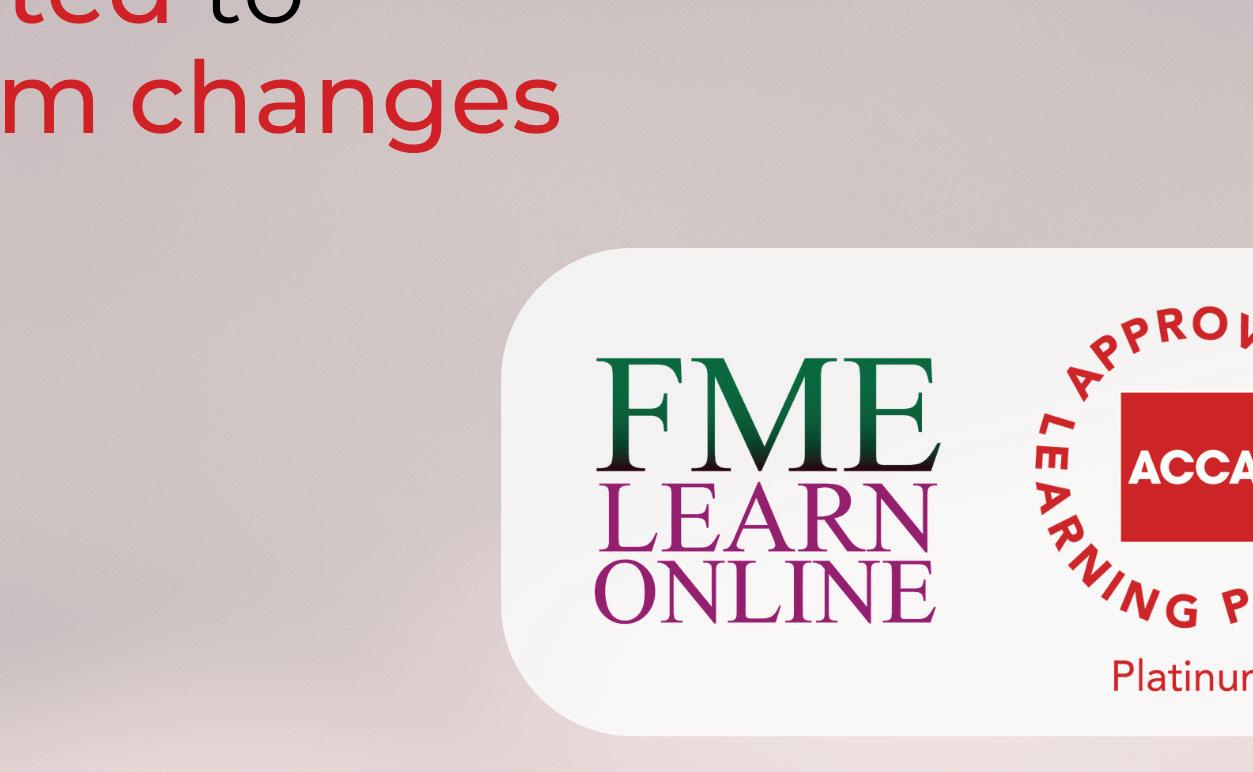

Top tutor VIVA is rolling out its online ACCA tuition, and for a limited time is offering early bird discounts.
It is offering video lectures by ACCA subject experts covering the whole syllabus, integrated exam scenarios and solutions, and downloadable lesson decks

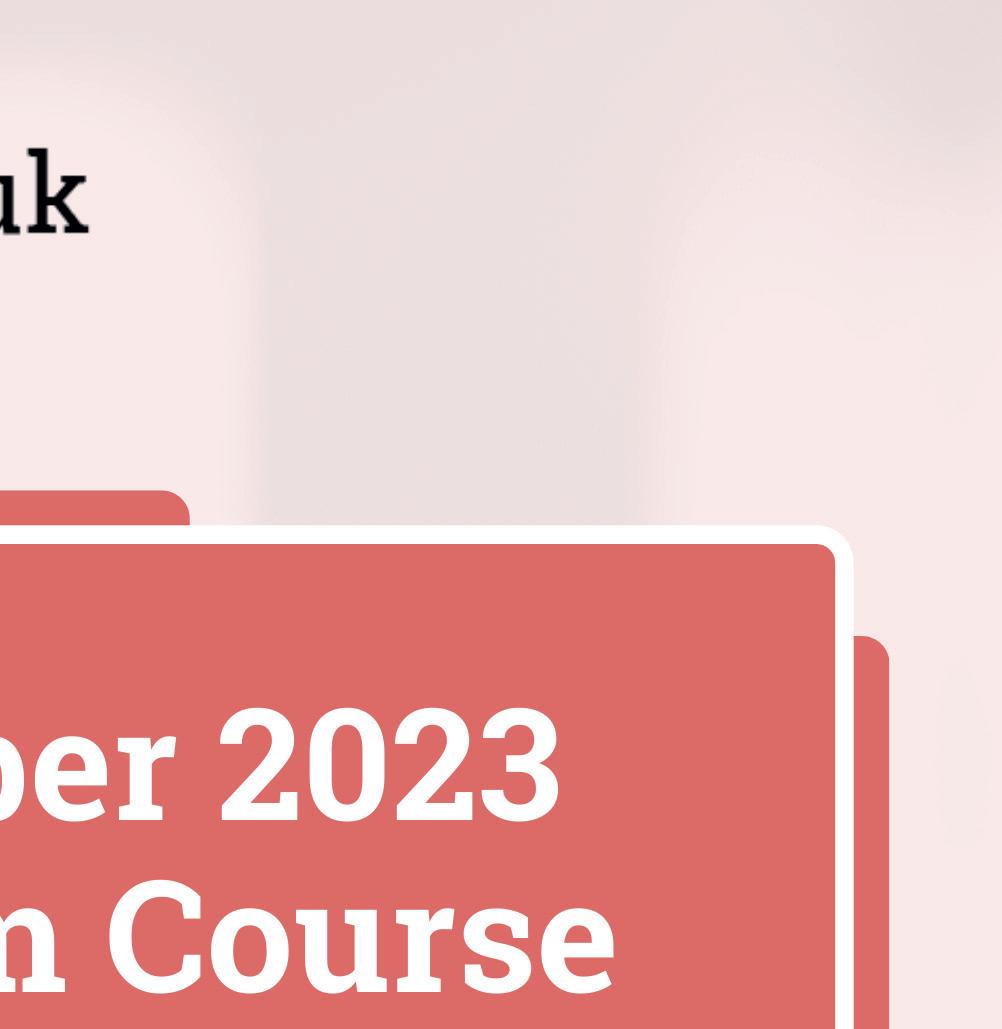
covering the whole paper. Live sessions with tutors are coming soon, too.
Learning starts from as little as £149 per ACCA course.
VIVA’s Hugo Newman told PQ magazine: “VIVA is delighted to be bringing its unique blend of award-winning tuition and ground-

said: “The record number of cases concluded this year reflects the strengthened capability and determination of the FRC to hold firms and individuals to account for serious accounting and audit failures.
“Timeliness has been a key priority over the past five years and significant ongoing improvements in this area are recorded in this year’s review.

“While higher financial sanctions are an important marker of the seriousness of the failings, nonfinancial sanctions continue to play a key role in driving improved behaviour and outcomes to deliver long-term positive change.”
breaking value to the ACCA space. Our first eight accredited ACCA courses are now live and open for enrolment. Early birds get a 50% discount on all courses. The remaining courses will be rolled out the rest of 2023, with new features being added to existing courses all the time.”
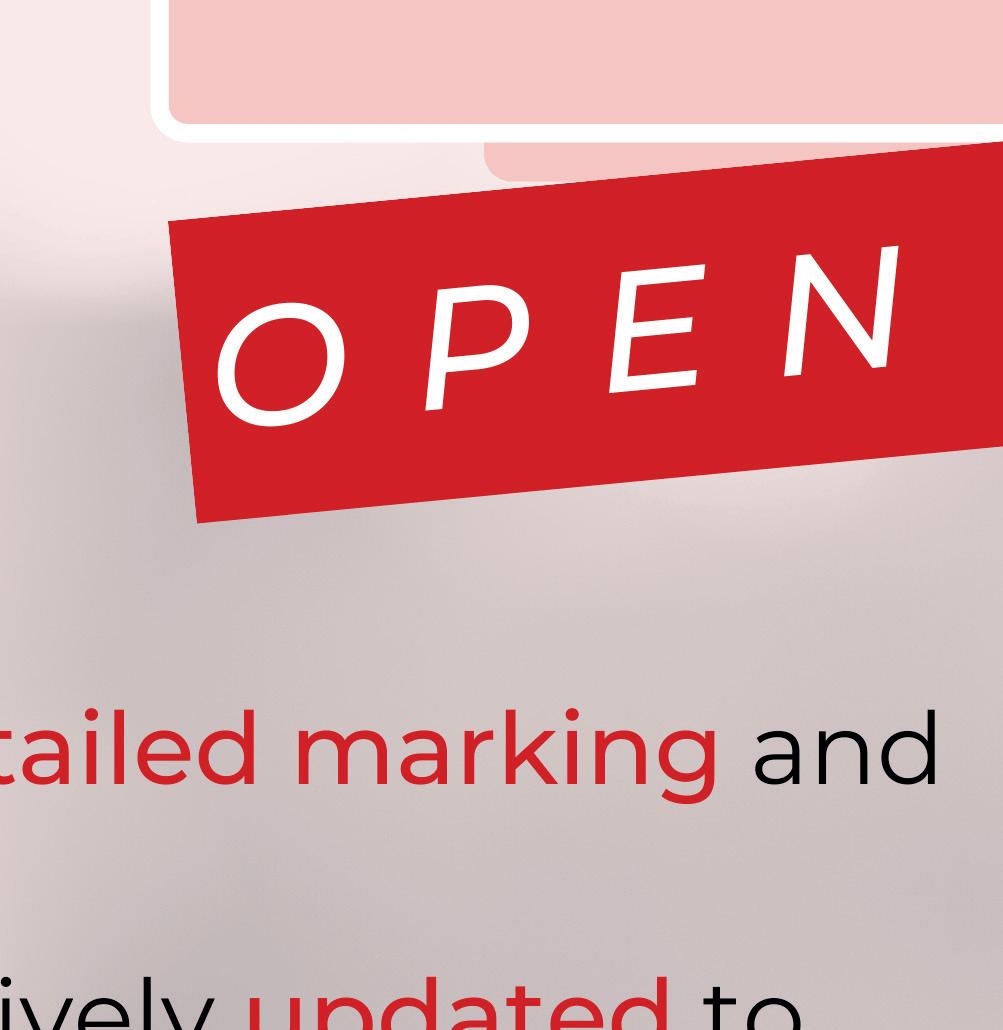


For more go to https://www. vivatuition.com/acca
THE MONTH: Commercial Finance analyst
Elevation Accountancy & Finance are recruiting a commercial finance analyst to join a market-leading business based in Sheffield, as part of their pricing and profitability team.
The ideal candidate may have previous experience within a commercial finance function and demonstrate exceptional analytical skills, encompassed with an outstanding interpersonal manner and well-developed stakeholder relationship management.
Up for grabs is a salary of £40,000 to £45,000 per year.
To find out more go to https://tinyurl. com/px3vha3z
PQ magazine posts a top job each week on our website, or you can just go to www.pqjobs.co.uk to check out what other great positions are out there right now. We recently had jobs for a finance analyst (renewable energy), audit senior or semi senior (hybrid), and an accounting and control specialist accountant – to name but a few!
PQ 5 PQ Magazine September 2023 PQ PQ JOB OF
news
ROBERT BRUCE Climate change is boiling our brains
New CEO for FRC
Richard Moriarty (pictured) has been appointed the new CEO of the Financial Reporting Council. He succeeds Sir Jon Thomson, who left the FRC on 31 July.

Moriarty takes up his post at the beginning of October, so Sarah Rapson will be acting CEO and accounting officer for August and September.
The new chief has had a 20-year career at various regulatory bodies, most recently as CEO of the Civil Aviation Authority. He has undergraduate and postgraduate degrees in economics, and an MBA from University of Warwick
Business School.
Moriarty said: “The FRC has a critical role to play in underpinning investor and public confidence in financial reporting and corporate governance in the UK. It is a privilege to be asked to lead the organisation at this important time and oversee its successful transformation into the new Audit, Reporting and Governance Authority.

“I’m very much looking forward to leading the FRC team at such a key time for all of the work in its very broad and important remit. Having undergone such a strong
transformation in recent years there is still so much to be achieved in the years to come and I’m excited to get started.”
CIMA launches new climate resource
Accounting for Sustainability is a global network. Sustainability standards are in place. Climate-related financial disclosures are part of the reporting architecture. The risks of climate change are now embedded, more or less, in the financial decision-making. Yet, as a colleague said gloomily to me at the outset of all this, I think we are already too late. It is hard not to agree. As the UN’s Secretary-General said the other day: “The era of global warming has ended. The era of global boiling has begun.”
What is now commonplace would have seemed horrifying to us 20 years ago. But what of the children we were then trying to protect? Well, anecdotally and from talking with colleagues, they care but feel it will tarnish their dreams of prosperity. The consensus is fraying. As with politicians in recent weeks platitudes are preferred to action. We will continue to boil.
CIMA and AICPA have launched more online resources designed to help finance professionals build their sustainability literacy.
The latest in the series
– Accounting for Climate Resilience – outlines the six steps for applying scenario analysis to climate-related risk and opportunities:
• Ensure governance is in place.
• Assess materiality of climaterelated risks.
• Identify and define a range of scenarios.
• Evaluate business impacts.
• Identify potential responses.
• Document and disclose key
inputs, assumptions, analytical methods, outputs, and potential management responses.
CIMA’s Martin Farrar, who
Pre-seen SBL changes
The introduction of the pre-seen for SBL will mean some format changes to the September exam. ACCA has said the number of exhibits students will need to deal with will be ‘significantly reduced’. The exam itself will also have three compulsory tasks. In previous
exams there was no set number of tasks. Each of the three tasks will have a varying number of parts and total marks.
Moving forward, each professional mark will be tested only once and will be worth four marks each.
authored the report, said climate resilience is something accountants should be doing. He said they are ideally placed to build climate resilience in their organisations through scenario analysis and the development of adaption plans. This plan then needs to sit alongside a net zero transition plan.
Farrar explained: “If accounting for carbon is about mitigation and bringing down your emissions to help keep the temperature stable, resilience is about forming strategies to prepare for impending environmental changes.”

Finally, the exam itself will no longer be answered as a single requirement in one word document. Each task will be completed as a separate requirement in a separate response option/options. You will also not be able to view all tasks together, so only one task will be shown at a time.
Check out our feature on page 24.
LUCA awards nomination time
The ICB has launched the search for its Student and Tutor of Year –yes, the LUCA awards are back.

Nominations are open until 31 August, for what really are the Oscars of the bookkeeping world.
Among the other 21 awards up for grabs are friendliest
training provider and friendliest software (which we love).
The LUCA awards themselves are exclusive statuettes of Luca Pacioli, the Cistercian monk who is credited with first documenting the process of double entry bookkeeping that endures today. PQ magazine won one in 2017!
Check out the award nomination and support pack at https://rb.gy/lbefr
PQ giveaways: latest winners
The June and July issue PQ magazine giveaways are on the way to readers. The prize draw winners are: Manga Business Book series – Izabela Szymanowicz, Barry. Budget Planners – Roberto Martin, Chichester; Clare Richards, Ceredigion; Nicola Perry, Shrewsbury. ICB socks – Zahra Jiwa, Milton Keynes; Zoe MelsomeSmith, Barnoldswick; Ildiko Torok, Woodford Green. July Book Club –Violeta Ingaunyte, London;
Commission adopts
sustainability standards
The European Commission has adopted the European Sustainability Reporting Standards (ESRS) for all companies subject to the Corporate Sustainability Reporting Directive (CSRD).
ICAEW CEO Michael Izza said that this was a major milestone for sustainability reporting across Europe.
6 PQ the PQ Magazine September 2023
Christine Newton, London; Debra Stevens, Exeter.
In brief
Almost 20 years ago when I started work with what was then the Prince of Wales’ project to entwine the financial reporting world with sustainability objectives we had a simple mantra. We would hold roundtables with business leaders. And one of the most frequently uttered reasons for wrapping accounting and sustainability together was that they would not be able to look their children in the face if their future was completely buggered by climate change. The work has grown massively since then and much of the initial objectives are being steadily achieved.
Robert Bruce is an award-winning writer on accountancy for The Times
LUCA 2022 Student of the Year Helen Brooks with Garry Carter, co-founder and President of ICB



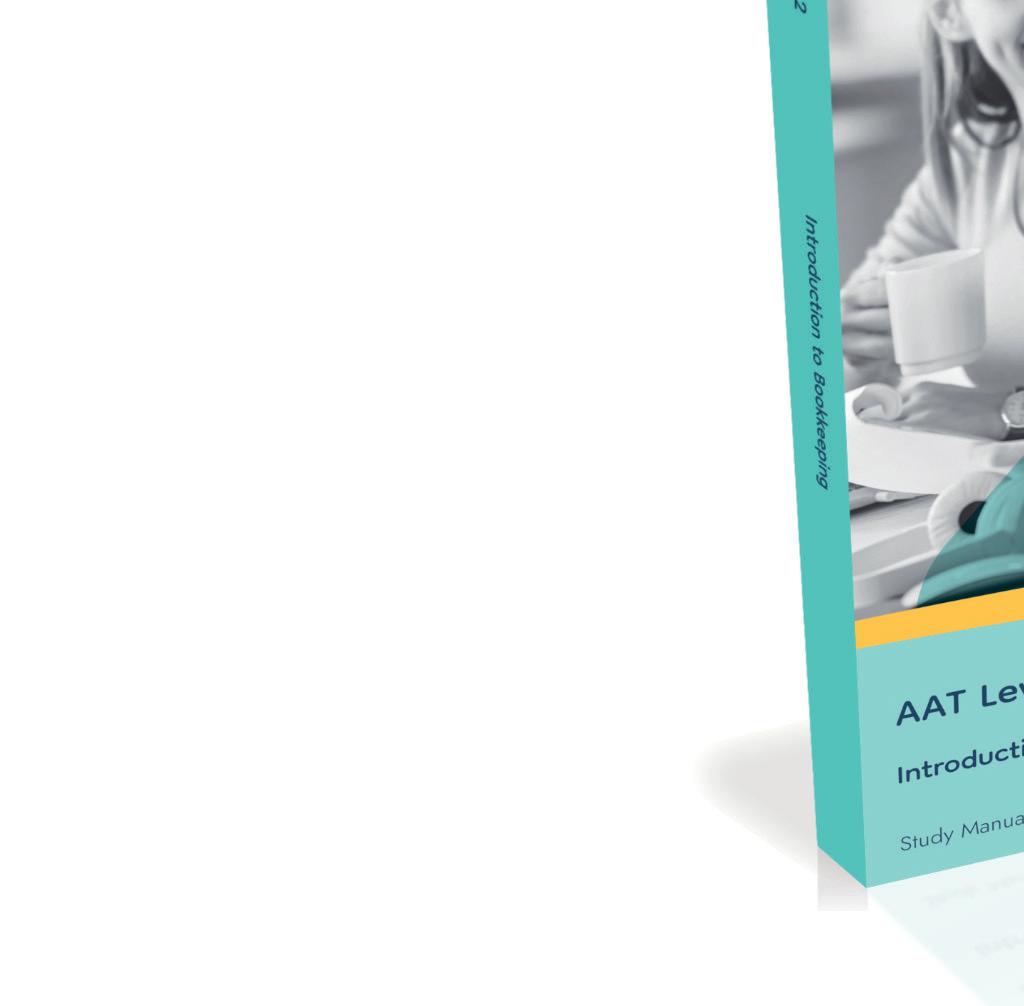

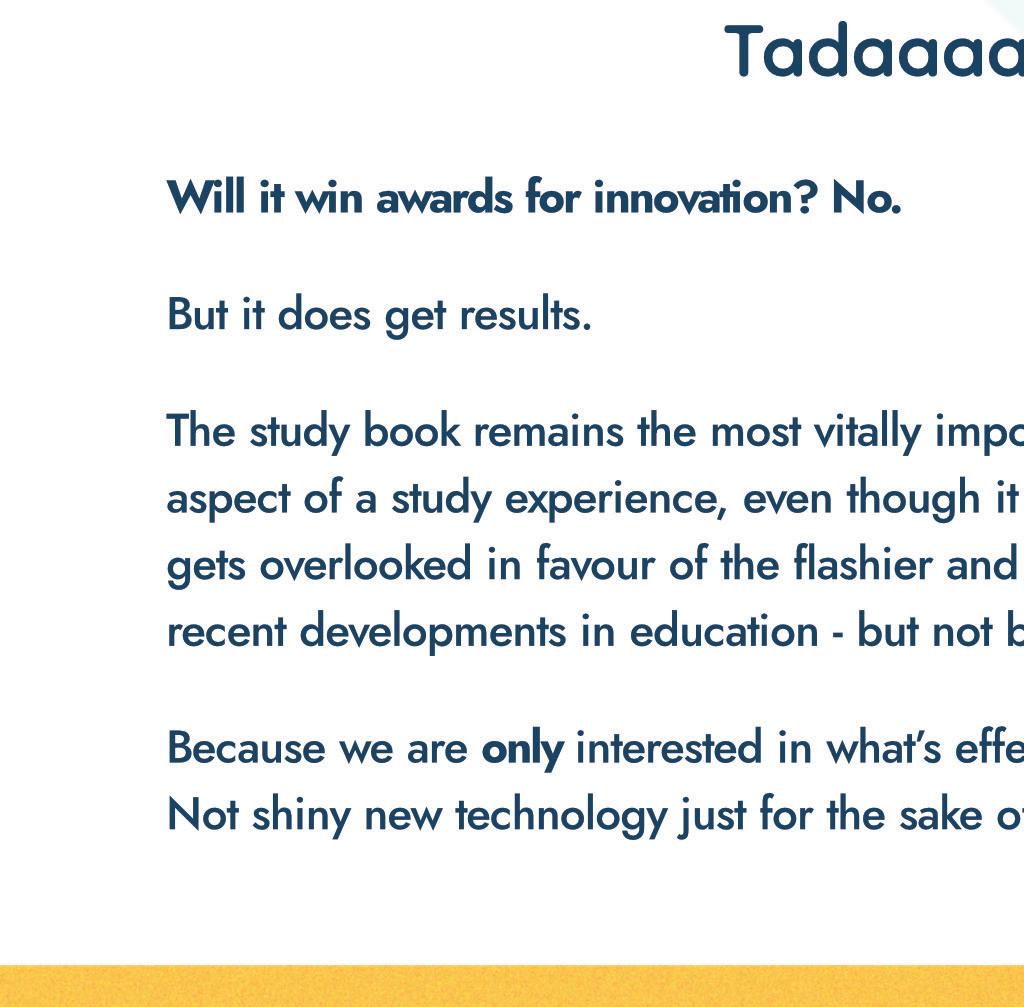



PREM SIKKA

Gen Z recruits get extra training
Exploding the myth of the free market
Our lives are increasingly governed by myths that rarely withstand scrutiny, but enrich a select few. One of these is the assertion of free markets. This implies that markets consist of numerous buyer/ sellers and no one is a price maker.
This is a fiction – too many sectors are dominated by monopolies and oligopolies, dedicated to advancing private interests. Oil, gas, electricity, banking, supermarkets, shipping, pharmaceuticals, water, railways, mobile phone and internet services are just some examples. Customers are rarely able to curb predatory practices, regulators are weak and the state does little to check abuses.
Left to themselves markets devour communities. They don’t rescue ailing businesses and expect the state, on behalf of the people, to resuscitate or bail them out and hand billions of public cash to private entities. The state bends laws to give advantages to big business. The City of London, the assumed citadel of free markets, has been the biggest recipient of financial and non-financial state aid.
Markets show little appetite for longterm risks, and companies are subsidised by the public purse. Recent examples include £13.3bn subsidy for train companies; £5bn for broadband providers; £500m for Jaguar Land Rover; £600m for steel; £617m for Drax; and £24bn for petroleum companies to decommission old rigs. Companies keep the resulting assets and income streams. None of this results in fair competition or level playing fields, the supposed essentials of free markets. Debunking neoliberal myths is a necessary condition for emancipatory change.
KPMG’s young recruits are receiving new intensive courses in soft skills amid concerns that their confidence and development was stifled during lockdown.

The Big 4 firm is providing all its graduates and apprentices training on topics such as ‘how to collaborate with colleagues’ and ‘how to give effective presentations in person’.

It is also understood that KPMG has also scrapped its remote induction weeks for grads, and is bringing them into the office at least three days a week.
A report in the Daily Telegraph said KPMG will also reduce the prevalence of virtual lessons as part of the graduates’ accounting qualifications and demand more
face-to-face learning and office attendance.
KPMG CEO Jon Holt told the Telegraph: “There is no doubt that the pandemic has impacted recent graduates and apprentices, who are now joining the workforce. They have missed out on a lot. If I think back to my own time at the University of Nottingham it’s hard to image how my experiences –
including the friendships I formed – might have been affected.
“I admire their resilience and it’s important that as a business we support them as they begin their training and careers with us. This includes offering additional courses to help them build soft skills, as well as training them in the big issues facing our clients such as ESG and technology.”
ACCA gains audit accreditation in South Africa
ACCA members, and future members, will have a route to attaining registered audit status in South Africa following the accreditation of the ACCA qualification by the Independent Regulatory Board for Auditors (IRBA).
The announcement means that ACCA members with the right experience can from 1 April 2024 register for IRBA’s Audit Development Programme (ADP), an

18-month audit specialism process which is its pathway to Registered Auditor status. Further details
Students behaving badly
CIMA student Sasvinth Sarveswaran of Chessington, Surrey, has been removed from the student register after telling his employer he had sat a series of exams, when this did not happen.
The student even created screenshots of his ‘MyCIMA’ account purportedly demonstrating he had passed P2.
Global digital services tax update
Some 138 countries and jurisdictions have agreed to honour the voluntary pause on creating their own digital service tax (DST) until the end of 2024, says the OECD. However, there is one fly in the ointment –Canada. It told the OCED that its new DST will come into force in January 2024 because of fears there could be further delays. Canada’s finance minister, Chrystia Freeland, explained: “Canada does not disagree with the substance of the multilateral treaty that has been negotiated; indeed, we support it fully.
“However, without any firm and binding
CIMA’s disciplinary committee concluded that the appropriate and proportionate sanction was one of removal from the Student Register. The committee further determined that Sarveswaran should contribute a sum of £4,075 in costs.
Meanwhile, ACCA student Fawaz Bashir of Multan, Pakistan, was
multilateral timeline to implement [the reform], Canada cannot support the extended standstill.”
How not to pay corporation tax
Asda and Morrison, who are both owned by private equity, did not pay any corporation tax last year.
Before the private equity takeovers the supermarkets paid on average £200 million in corporation tax each year. By comparison Tesco, paid £247 million in corporation tax last year and Sainsbury’s £120 million.
Asda and Morrison have no profits as they are paying off the interest payments on their new debt, which has been loaded onto the balance sheet.
for ACCA members and future members are available here Helen Brand, ACCA chief executive (pictured), said: “We’re delighted that the skills and knowledge of ACCA members in audit have been recognised in South Africa. This will increase opportunities for our members and future members, as well as our ability to make a strong and positive contribution to South Africa’s economy and society.”

recently found guilty of taking photographs of two exam questions in breach of exam regulations. He then shared these photos. The obvious worry is these questions could be seen by other entrants of the same exam in order to obtain an unfair advantage.
The ACCA disciplinary committee orders that Bashir be removed from student membership and to pay costs to ACCA in the sum of £6,000.
Professor Richard Murphy said private equity companies should not be allowed to offset interest against profits when buying companies. He believes firms should only be allowed to offset interest against profit if the expenditure benefits the company.
India goes after online gaming
The Indian government is imposing a 28% tax on funds collected from customers by online gaming firms.
Interestingly, the Indian Goods and Services Tax (GST) Council said it saw no difference between a ‘game of skill’ and a ‘game of chance’. So, the 28% tax will apply to online gaming, casinos and horse race betting.
8 PQ the PQ Magazine September 2023
news
Prem Sikka is Emeritus Professor of Accounting at the University of Essex
June ACA exam results are in


Just over 7,000 ICAEW PQs turned out for the June Professional Level exams, and the pass rates are now out.

The ICAEW stats show 12,138 exams were sat, with 5,415 trainees passing all the exams they took.
That means 1,650 students now move on to the advanced stage, and 908 of these are doing so without failing any exams.
Most students (3,115) sat two
UK accountants love to WFH

UK financial professionals are leading the globe in making hybrid working ‘work’, according to ACCA’s UK Talent Trends in Finance 2023 report.
The research – based on a global survey of over 8,000 finance professionals – found that the UK is one of the most advanced regions in the world in terms of high levels of remote and hybrid working, with Scotland the global leader. The data also suggests that, across a range of
papers and 70.4% of sitters passed both, with another 13.9% passing one paper.
Some 2,899 PQs sat just one paper, and the pass rate for these sitters was 74.4%. That left 25.6%, or 741, with no pass.
The June sitting saw some very strong paper pass rates. The
work satisfaction metrics, hybrid workers are significantly happier than those working full time in the office.
Jamie Lyon, head of Skills, Sectors and Technology at ACCA, said: “Only one-fifth of respondents in the UK identified as fully office based, with the remaining 80% either adopting a hybrid approach to work or being fully remote. However, globally, the picture is notably different, with over half of respondents being fully office based. And 77% of respondents in the UK feel they are more productive when working remotely.”
Financial Management paper’s 88.3% is the highest on record – well, we went back to 2018.
The Audit and Assurance and Business Planning: Taxation pass rates of 84.3% and 84.6% respectively were only bettered in March 2021.
Tax Compliance also came in at a
healthy 84.6%, and this was beaten in September 2021 with 88.4%.
ICAEW PROFESSIONAL LEVEL
JUNE 2023 PASS RATES: Audit & Assurance 84.3%; Financial Accounting & Reporting (IFRS) 80.6%; Financial Accounting & Reporting (UK GAAP) 80.8%; Tax Compliance 84.6%; Business Planning: Taxation 82.9%; Business Planning: Banking 71.6%; Business Planning: Insurance 75%; Business Strategy & Technology 85.8%; Financial Management 88.3%
CIMA and CPA Canada sign MoU
CIMA and the Chartered Accountants of Canada (CPA Canada) have signed a Memorandum of Understanding which allows members of each body to concurrently become members of the other body and adopt, subject to criteria, the relevant designation.

CIMA members are now able to join a provincial/regional CPA body, subject to passing days two and three of CPA Profession’s Common Final Exam. CPA Canada members will need to pass the CGMA Strategic case study. Both sets of


members will also have to meet the other body’s practical experience requirements.
CIMA’s Andrew Harding said: “The agreement will mean that CIMA and CPA Canada members will now have a bigger range of employment opportunities and will be able to use their skills even more widely. Holding the CPA and CGMA designations shows a depth of accounting and finance knowledge that companies all over the world will be looking to acquire to enhance their competitive advantage.”
PQ 9 PQ Magazine September 2023 PQ news
an Intermediate Financial Accountant Unlock you career potential with the IFA Graduates, recently qualified and part qualified accountants get the support, guidance and recognition you need to set yourself apart in a competitive SME job market with: • Designatory letters IFA AIPA • Access to a variety of technical resources • Relevant CPD webinars and networking meetings • Financial Accountant, our member magazine • MyCommunity, our online member space • A weekly enewsletter covering accounting, finance and business FIND OUT MORE at IFA.ORG.UK/ROUTESIFA
Become
ANNA KATE PHELAN
Performance management problems
The June PM and APM pass rates were exactly what students expected – they were the worst pass rates for the Applied Skills and Strategic Professional Levels respectively.
PM had a pass rate of 40% this time around, and APM 34% (joint with AAA). Students will not be surprised to hear that the APM pass rate has been lower – in 2017/2018 it was 29% for two sittings in a row.
Both SBL and SBR had healthy pass rates of 51%, despite the SBR exam being top of the Open Tuition Instant Poll ‘naughty list’.
At 56%, TX had the highest pass rate of the traditional Applied
Skills papers. For this paper you will not find a higher pass rate than June 2009 (61%), but that was very much a one-off. Sitters will be hoping the new TX pass rate level is here to stay.
AA was also a healthy 45% this time around. This is the fourth
exam where the pass rate has remained above 40%.

Alan Hatfield, executive director – content, quality, and innovation, was particularly happy with the uplift of the Strategic Professional pass rates. He wants to encourage all students to use the new digital platform – the ACCA Study Hub. He reiterated that the Study Hub content has been proven to show an increase in student pass rates – meaning you will be qualified quicker.
ACCA JUNE 2023 PASS RATES: LW 80%; TX 56%; FR 49%; PM 40%; FM 52%; AA 45%; SBL 51%; SBR 51%; AAA 34%; AFM 47%; APM 34%; ATX 43%
The intention is to turn Twitter into a ‘super app’. Musk greatly admires the reach and influence of these types of apps in Asia. Apps such as China’s WeChat, Indonesia’s GoJek and India’s PayTM provide a wide range of services from social media to video/audio to shopping/payments.
There have already been some embarrassing teething issues. An ‘X’ sign was erected at Twitter’s San Francisco headquarters and then quickly removed due to lack of planning permission. There are also some concerns about the rebranding itself.
Twitter's own website states its previous logo, the blue bird, is “our most recognisable asset”. To tweet has made its way into the lexicon as a method of communication, with entries in both the Oxford and Cambridge dictionaries. Brand awareness has not quite reached that level with ‘X’. The comedian David Baddiel makes an excellent point: “Twitter had some realworld evocation – the sound of birds, all vying to be heard. ‘X’ is just an abstract, signifying… um… that Elon likes the letter, and naming things with it.”
New support for Black professionals
BYP Network, a leading organisation focused on empowering Black professionals and corporations, has launched a ground-breaking career advancement platform, Javelin.
Designed to bridge the gap between Black talent and career opportunities, it is hoped Javelin will accelerate BYP Network’s mission to help millions of Black professionals in their career progression. It is also hoped the platform can help eliminate traditional barriers and
biases that can hinder career progression.
Javelin is currently in beta
phase and is welcoming users to be the first to try it out. Sign up at https://tinyurl.com/yf3k4ct4
BYP Network’s CEO and Founder, Kike Oniwinde Agoro (pictured), was a javelin thrower for Great Britain, so the name Javelin holds deep significance for her. Agoro explained: “By leveraging this innovative technology and our extensive network of corporate partners, Javelin will empower Black professionals and propel them towards exceptional career opportunities.”

New international standards on the way
The International Accounting Standards Board (IASB) will be issuing two new standards in the first half of 2024.
The first new accounting standard will result in companies reporting more consistently and transparently on their financial performance, making it easier for investors to compare companies.
It will, says IASB, help to build trust between companies and investors and ultimately ease the flow of capital. The IASB is now satisfied that it has refined its original proposals published in 2019 to reflect stakeholder feedback. This new standard will supersede IAS 1 Presentation of Financial Statements.
The second new accounting
standard will reduce disclosure requirements for subsidiaries that are not traded on a public market, or hold assets entrusted to them by their customers. This standard will enable those subsidiaries to prepare full IFRS financial statements locally by using the information reported to their parent company but with reduced disclosures.
PwC partner promotions
PwC UK promoted 69 directors to its partnership this summer, and admitted five further direct partner hires. This brings the size of the UK partnership to 1,057.

Some 42% of the directors promoted to partners in the July cohort were women (up from 39% last year) and 19% came from an ethnic minority background (up from 14%). This moves the firm closer to its 2025 gender and ethnicity representation targets at partner level of 30% and 15% respectively.
Reflecting the increasingly important role technology plays at PwC, 15% of the new

partners are technologists. Among this group, half (50%) are female, 30% are from an ethnic minority background, and 20% are based outside London.
Gender equality
Deloitte UK has been named in The Times Top 50 Employers for Gender Equality list for the eighth year running. The list recognised Deloitte as one of the top organisations that continues to prioritise gender equality.
Deloitte in the UK has recently launched new policies to support gender equality and inclusion, including enhancements to its parental leave policies, bereavement and baby loss leave, and a new menopause policy. It also introduced cover for assisted fertility treatment
and gender dysphoria as part of the firm’s private medical insurance.
• KPMG, PwC, and Grant Thorton were also on the Times list, along with Sage and IRIS software.

Companies under stress
Quarterly company insolvencies reached over 6,300 for the first time since 2009 in Q2 as many UK businesses struggled to contend with a sustained mix of pressure, says EY.
It explained that although company insolvencies have been steadily increasing over the past 18 months, largely driven by Creditors’ Voluntary Liquidations (CVLs), in Q2 there was a significant rise in the number of compulsory liquidations, which rose 67% year-on-year.
10 PQ the PQ Magazine September 2023 news
By now, many of you will be aware Twitter has rebranded from the infamous blue bird to Elon Musk’s favourite letter ‘X’. Musk is the founder of SpaceX and made headlines worldwide by naming his child ‘X’, so this appears to be the latest step in the ‘Muskification’ of Twitter. Tweets are to be replaced and posts will be called “x’s”.
A bird in the hand is worth ‘X’ in the bush
Anna Kate Phelan is Head of Product at Eintech










Get your head around the new question types from AAT. Get Rogo. Easily create accurate practice exams with Rogo’s question types, matching the new formats from AAT assessments. Visit getrogo.com to learn more
DAVID ROTHERA A year to celebrate
Generative AI is coming to your workplace
More than a quarter of UK adults are now using generative AI at work, according to new research from Deloitte. That equates to around four million workers.
The Deloitte survey found just over half (52%) of the population have heard of generative AI, and one in 10 of those surveyed use it at work.
The report revealed a generative AI tool had been used by 26% of respondents, with one in 10 of these using it at least once a day.
The Deloitte survey found that of those who had used generative AI, more than four out of 10 believe it always produces factually correct
answers. One of the biggest flaws in generative AI systems so far is that they are prone to producing glaring factual errors.
Tech expert Sjuul van der Leeuw,

Blockchain ‘a force for good’
Blockchain has the potential of playing an increasingly positive role in how public services are delivered, says a new CIPFA study.
The report, called ‘Exploring blockchain technologies for collaboration and partnerships’, found that the key features of blockchain, such as immutability, decentralisation and programmability, allows the creation of networks that can be used to support collaboration
across stakeholders and organisations.
Blockchain is also considered ‘tamper proof’, so it can significantly improve accountability and transparency, which are both key to good public financial management.
Jeffrey Matsu, CIPFA’s Chief Economist, said: “Wider adoption of blockchain has the potential to improve public policy outcomes in more collaborative ways.

“Digital ledgers can enable
CEO of Deployteq, said: “These figures underline the fact that generative AI is already playing a crucial role in our daily lives and this trend is set to continue indefinitely. From transforming public services, shaking up traditional business models and turbocharging the creative industries, it will continue to have a major impact on our economic growth.
“However, it’s vital that nobody is left behind, and this means having the right training and governance policies in place so that this technology can be used responsibly.”
Orkney gets first drone delivery
The UK’s first-ever mail drone service has begun in Orkney. A partnership between Royal Mail, Orkney Islands Council Habour Authority, Loganair and Skyports will see letters and parcels delivered between the Scottish islands ‘by air’. This is very much a pilot and will initially operate for three months. Poor weather in the region has often affected the delivery service, and drones are seen as a way of improving the service.
innovative ways of managing contracts and relationships that enhance transparency and confidence – delivering longer-term value.”
Download the report at https:// tinyurl.com/3dkk7hhy
Creating a trustworthy AI ecosystem
The UK government needs to work fast on the detail of regulating artificial intelligence (AI) to give business the certainty it requires. At the same time, the UK should work to secure international co-operation and interoperability, while ensuring that on the domestic front there is a high level of joined-up thinking across sectors


Skyports will be using Speedbird Aero DLV-2 drones, which can carry up to 6kg. You will be pleased to hear that the aircraft are also equipped with a parachute!
AI helping to increase completion rates
A new software platform has been developed to improve apprenticeship completion rates, by identifying students most at risk of dropping out.
A collaboration between Aston University and Advanced Smart Apprentices has seen the creation
and stakeholders (government, business, regulators, and civil society) to avoid duplication or things falling into gaps between different regulators.
These recommendations from ACCA and EY form part of a joint response to the UK government’s AI white paper, ‘A pro-innovation approach to AI regulation’.
of ‘Smart Coach’, which can spot students who are thinking of leaving their apprenticeship after just three months of study.
The Smart Coach module analyses patterns in learner behaviour and identifies areas for closer learner support by combining complex data consolidation and in-depth predictive analytics based on learner records.
The project team used machine learning to create a prescriptive analytics model, which identifies at risk learners while also indicating possible interventions to mitigate
The response, called ‘Building the foundations for trusted artificial intelligence’, strongly supports the pro-innovation approach. However, it also makes clear that AI impacts the lives of all citizens. Involvement and feedback are needed across the whole of the socio-economic spectrum, and across all sectors, industries and sizes of business. AI development cannot be confined to a narrow coterie of influencers, it said.
risks and support each student’s learning journey.
Two-hour limit
Chinese regulators are proposing new rules that would limit those between 16 to 18 years old to two hours on their phone a day. The regulator is now calling on providers of smart phones to introduce a ‘minor-mode’ on all their devices. The idea is to stop those between 16 and 18 from accessing the internet on their mobiles from 10pm to 6am.
12 PQ the PQ Magazine September 2023
tech news
Tech briefs
Just over a year ago, we embarked on a ground-breaking mission – to create a pathway to net zero, designed exclusively for accountants. We were lucky to have some amazing partners join us on this journey, including the ICAEW, ACCA, AAT, AIA and Sage. Today, we are thrilled to share that the response to our initiative has exceeded our wildest expectations. Working with over 60 firms, ranging from small enterprises with just one employee to some of the largest in the UK, we have already made a significant impact on the accounting industry’s move towards sustainability. Our vision was clear from the start: we aimed to empower accountants to take meaningful action in the fight against climate change. We recognized the vital role that accountants play, not only in managing financial matters but also in helping their clients navigate the complexities of carbon accounting and sustainability. By creating a specialised Net Zero Initiative for accountants, we hoped to open doors to a world of opportunities in the realm of environmental responsibility. Now, just one year into the initiative, we are delighted to see our vision coming to fruition. Working with 10% of the UK's largest 100 accountancy firms is an achievement we take immense pride in. It demonstrates the growing recognition among accounting professionals that sustainability and climate action are not just optional add-ons but essential components of their practice. To find out more go to www. netzeronow.org/accountants
David Rothera is Climate Project Manager at Net Zero Now
WŝĐŬ�,d&d ĨŽƌ���d
tĞ�ŚĂǀĞĂ�ƌĂŶŐĞ�ŽĨ�ůŝǀĞ�ĐŽƵƌƐĞƐ�ĨŽƌ���d�>ĞǀĞů�ϯ�ĂŶĚ >ĞǀĞů�ϰ�ƵŶĚĞƌ�YϮϬϮϮ ƐƚĂƌƚŝŶŐ�ŝŶ�^ĞƉƚĞŵďĞƌ�ϮϬϮϯ ƚŽ� ĐŽŵƉůĞŵĞŶƚ�ŽƵƌ�ŽŶ ĚĞŵĂŶĚ ŽƉƚŝŽŶƐ�Ăƚ�>Ϯ �>ϯ�ĂŶĚ�>ϰ
,d&d ůŝǀĞ �ƉƌĞ ƌĞĐŽƌĚĞĚ�ƐLJůůĂďƵƐ�ǀŝĚĞŽƐ�ƚŚĂƚ�ůĞĂĚ�ŝŶƚŽ�ƐĐŚĞĚƵůĞĚ�ůŝǀĞ�ŽŶůŝŶĞ�ŝŶƚĞƌĂĐƚŝǀĞ�DĂƐƚĞƌĐůĂƐƐĞƐ ;ǁŝƚŚ�ĞdžƉĞƌƚ�ƚƵƚŽƌƐ �Ăůů�ĚĞƐŝŐŶĞĚ�ƚŽ�ƐƵƉƉŽƌƚ�LJŽƵƌ�ŵĂƐƚĞƌŝŶŐ�ŽĨŬŶŽǁůĞĚŐĞ – ĂĐĐŽŵƉĂŶŝĞĚ�ǁŝƚŚ� ĐŽŵƉƵƚĞƌ�ďĂƐĞĚ�ƚĞƐƚƐ�ĂŶĚ�ŵŽĐŬ�ĞdžĂŵƐ &Žƌ�ŵŽƌĞ�ŝŶĨŽƌŵĂƚŝŽŶ�ǀŝƐŝƚ�ǁǁǁ ŚƚĨƚƉĂƌƚŶĞƌƐŚŝƉ ĐŽ ƵŬ ĐŽƵƌƐĞƐ ĂĂƚ
dŚŝŶŬ����� �ƚŚŝŶŬ�,d&d
tĞ�ŚĂǀĞ�Ă�ĨƵůů�ƐƵŝƚĞ�ŽĨ ������ƉƉůŝĞĚ�^ŬŝůůƐ�ĂŶĚ ^ƚƌĂƚĞŐŝĐ�WƌŽĨĞƐƐŝŽŶĂů�ĐŽƵƌƐĞƐĨŽƌ �ĞĐĞŵďĞƌϮϬϮϯ ĞdžĂŵƐ �ƐƚĂƌƚŝŶŐ� ĞĂƌůLJ�^ĞƉƚĞŵďĞƌ
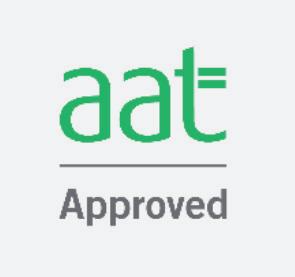
▪ DĞŵďĞƌƐŚŝƉ�ŽĨ�ŽƵƌ�ǀŝďƌĂŶƚ�KŶůŝŶĞ�>ĞĂƌŶŝŶŐ��ŽŵŵƵŶŝƚLJ ĂŶĚ�ĂĐĐĞƐƐ�ƚŽ�Ă�ĚĞĚŝĐĂƚĞĚ�ƚƵƚŽƌ ▪ ,d&d�WĂƌƚŶĞƌƐŚŝƉ�ƐƚƵĚĞŶƚŶŽƚĞƐĂŶĚ������ĂƵƚŚŽƌŝƐĞĚ�ƐƚƵĚLJ�ƚĞdžƚ �ĞdžĂŵ�Ŭŝƚ�ĂŶĚ�ƉŽĐŬĞƚ�ŶŽƚĞƐ ▪ &Ƶůů�ƐLJůůĂďƵƐ �dŽƉŝĐ�ďLJ�dŽƉŝĐ�ƌĞĐŽƌĚŝŶŐƐ�ƐƵƉƉŽƌƚĞĚ�ďLJ�ƚŝŵĞƚĂďůĞĚ ‘live online’ dƵŝƚŝŽŶ DĂƐƚĞƌĐůĂƐƐ�ƐĞƐƐŝŽŶƐ�–
�ĚŽǁŶůŽĂĚĂďůĞ�ĂŶĚ�ƉůĂLJĂďůĞ�ŽŶ�Ăůů�ĚĞǀŝĐĞƐ
▪ Scheduled ‘live online’ ZĞǀŝƐŝŽŶ DĂƐƚĞƌĐůĂƐƐ�ƐĞƐƐŝŽŶƐ�– ƌĞĐŽƌĚĞĚ �ĚŽǁŶůŽĂĚĂďůĞ�ĂŶĚ�ƉůĂLJĂďůĞ�ŽŶ�Ăůů�ĚĞǀŝĐĞƐ

▪ ,d&d�ĐŽŵƉƵƚĞƌ�ďĂƐĞĚ�ƚĞƐƚƐ�ĂŶĚ�ŵŽĐŬ�ĞdžĂŵƐ �ŵĂƌŬĞĚ ǁŝƚŚ�ĂŶƐǁĞƌƐ�ĂŶĚ�ǀŝĚĞŽ�ĚĞďƌŝĞĨƐ
&Žƌ�ŵŽƌĞ�ŝŶĨŽƌŵĂƚŝŽŶ�ǀŝƐŝƚ�ǁǁǁ ŚƚĨƚƉĂƌƚŶĞƌƐŚŝƉ ĐŽ ƵŬ ĐŽƵƌƐĞƐ

^ƚƵĚLJŝŶŐ��/D� KƵƌ�,d&d ůŝǀĞ �,d&d ŽŶ ĚĞŵĂŶĚ�ĂŶĚ�,d&d ƉůĂLJ�ƌĞƐŽƵƌĐĞƐ�ĂƌĞ�Ăůů�ŚĞƌĞ�ƚŽ�ŚĞůƉ�LJŽƵ�ƉƌĞƉĂƌĞ�ĨŽƌ �ĂŶĚ� ƉĂƐƐ �LJŽƵƌ�ĞdžĂŵ

,d&d ůŝǀĞ �ũŽŝŶ�ŽƵƌ�ĞdžƉĞƌƚ�ƚƵƚŽƌƐ�ůŝǀĞ�ŽŶůŝŶĞ�ĨŽƌ�ŝŶƚĞƌĂĐƚŝǀĞ�DĂƐƚĞƌĐůĂƐƐĞƐ �ĚĞƐŝŐŶĞĚ�ƚŽ�ƐƵƉƉŽƌƚ�LJŽƵƌ�ĂƉƉůŝĐĂƚŝŽŶ�ŽĨ� ƐLJůůĂďƵƐ�ŬŶŽǁůĞĚŐĞ
,d&d ŽŶ ĚĞŵĂŶĚ �ĚƌŝǀĞ�LJŽƵƌ�ůĞĂƌŶŝŶŐ �ǁŝƚŚ�ĨƵůů�ĨůĞdžŝďůĞ�ƌĞƐŽƵƌĐĞƐƚŚĂƚ�LJŽƵ�ĐŽŶƚƌŽů
,d&d ƉůĂLJ ��ŽdžƐĞƚƐ�ŽĨ�ƚŽƉŝĐ�ƌĞĐŽƌĚŝŶŐ�ĂŶĚ�WƌŽĨŝĐŝĞŶĐLJ�ĞdžĂŵ ƐƚLJůĞ�ƉƌĂĐƚŝĐĞ�ĂƐƐĞƐƐŵĞŶƚƐ




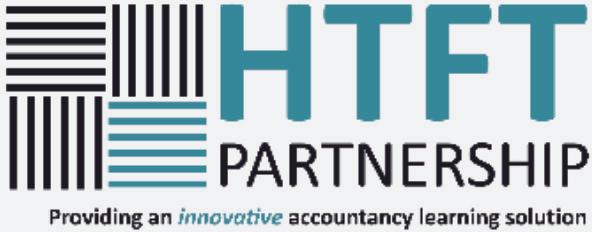
&Žƌ�ŵŽƌĞ�ŝŶĨŽƌŵĂƚŝŽŶ�ǀŝƐŝƚ
�/D��&ϭ �&Ϯ�ĂŶĚ�&ϯ�ůŝǀĞ�ŽŶůŝŶĞ�ĐŽƵƌƐĞƐ�ƐƚĂƌƚŝŶŐ^ĞƉƚĞŵďĞƌ
ƌĞĐŽƌĚĞĚ
ĂĐĐĂ
^ƚƵĚLJ��/D� �ĐŚŽŽƐĞ�,d&d
�ǁǁǁ ŚƚĨƚƉĂƌƚŶĞƌƐŚŝƉ ĐŽ ƵŬ ĐŽƵƌƐĞƐ ĐŝŵĂ ^ ^ƚƚƵĚLJ ǁ ǁŝƚƚŚ , ,dd&d d WĂƌƚƚŶĞƌƌƐŚŝƉ ǁ ǁŚLJ ǁŽƵůĚ LJŽƵ ŐŽ ĂŶLJǁŚĞƌĞ ĞůƐĞ tŚLJ ǁŽƵůĚ LJŽƵ ŐŽ ĂŶLJǁŚĞƌĞ ĞůƐĞ &Žƌ ŵŽƌĞ ŝŶĨŽƌŵĂƚŝŽŶ ĞŵĂŝů ŝŶĨŽΛŚƚĨƚƉĂƌƚŶĞƌƐŚŝƉ ĐŽ ƵŬ ǁǁǁ ŚƚĨƚƉĂƌƚŶĞƌƐŚŝƉ ĐŽ ƵŬ KŶůŝŶĞ��ŽůůĞŐĞ�ŽĨ� ƚŚĞ�zĞĂƌ�ϮϬϭϳ WĞƌƐŽŶĂůŝƚLJ�ŽĨ� ƚŚĞ�zĞĂƌϮϬϭဒ WƌŝǀĂƚĞ�^ĞĐƚŽƌ��ŽůůĞŐĞ� ŽĨ�ƚŚĞ�zĞĂƌ�ϮϬϮϬ
Just why aren’t accountants happy?
Only PQ magazine would dare to put the fact that ‘accountants are not happy being accountants’ on its cover (PQ, August ’23). Others might worry about alienating their readership, but not you!
If you read all the other news outlets it’s all rosy in the accountancy garden. And, if you live to read endless software and app reviews, they are good for that, too!

However, you and Dext are right, there are underlying problems that need addressing. In recent months you have highlighted the skills shortages and that fewer graduates are attracted to accountancy. Now you are saying those doing the job
do not like it, either.
As a PQ I was forced to work long hours on boring manual work and it appears that has not changed. When will the benefits from automation be here? Automation will be too late
for many accountants who are planning to leave the profession long before then.

Software companies aren’t helping matters. They advertise that their products can do the job of the accountant, but that is just not so. Any slight deviation from the norm and we have to pick up the pieces. They send the message that you don’t need to value the work accountants do, but it will be us that has to ‘take care of business’.
Name and email address supplied
The Editor says: It nice to think we go where others fear to tread. We pride ourselves on our independent approach, seeking out the stories that matter.

Our star letter writer wins a fantastic ‘I love PQ’ mug!

I want to see my examination paper!
Firstly, thank you for the monthly issue of the PQ Magazine, it is always full of great information.
I have been really upset with the last results on ACCA AAA. The fact that pass rates are so low on some subjects makes me think if this is done on purpose by ACCA, so they can recharge the exam fees again and again.
I can’t really understand how ACCA can claim to be transparent and open, but choses to keep exam papers and not allow us to see them when they are marked. How are we meant to improve if we don’t actually see where we went wrong in the first place?
Is this something PQ magazine can look into? How about starting a petition?
Name and email address supplied
The Editor says: OK, you ACCA students out there, do you want to be able to see your marked exam paper? Drop me a line and if there seems to be a demand we will take it up with ACCA.

Where’s the business case for MTD?
Who is surprised that HMRC’s Making Tax Digital project is ‘out
of control’? CIOT’s Alison Kerrey is right when she says the costs are spiralling, there were unrealistic timescales and questionable benefits.
Lots of people said that HMRC was underestimating the costs and overestimating the benefits, but no one listened.
Now we have the National Audit
Office’s report and the facts are there in black and white. But will it change anything? No is the answer! The HMRC seem to be on a mission and nothing is going to stop them, not even the cost.
Digitalisation was going to happen, but a proper business case needed to be made first, and it never was.
Name and email address supplied


If you have any problems with delivery, or if you want to change your
Our lead story last month, ‘Why aren’t accountants happy being accountants?’, certainly hit a chord with many accountants (see our lead letter).
Just over a third (36%) of accountants in a poll said they were considering leaving the profession in the next five years. Among the under 25s the figure was slightly lower, but still 30%. The lack of a healthy work/life balance was cited by many as the main reason why they were looking at a change of career. Interestingly, some 90% of accountants actually enjoyed their roles, but completing so many manual tasks was grinding them down.
Willard Chovinda loved the article and agreed “the accountant’s role involves too much manual work”. Jantin Ghaghda felt the story was “painful but quite true!” And Lori Ann White felt accountants are not paid enough: “Too much work for little pay.”
Marie Speakman said: “I think they are bored and not able to use their skills and training to make a difference in companies. With AI automation we can get accountants away from robotic work.”

Another story that got a lot of interest was
Professor Richard Murphy’s call for the nationalisation of the UK water industry. He suggested shareholders should not be compensated, either. His idea was to issue water bonds via ISAs to the public to help the industry raise the funds it needs. Murphy (pictured) felt that people would want to save in a way that ensures we all get clean water in the future. “Sounds like communism,” said one LinkedIn response we received!
14 PQ PQ Magazine September 2023
PQ Magazine PO Box 75983, London E11 9GS | Phone: 07765 386489 | Email: graham@pqmagazine.com Website: www.pqmagazine.com | Editor/publisher: Graham Hambly graham@pqmagazine.com | Associate editor: Adam Riches | Art editor: Tim Parker Contributors: Robert Bruce, Prem Sikka, Lisa Nelson, Anna Kate Phelan, Tony Kelly, Phil Gammon, Edward Netherton | Subscriptions: subscriptions@pqmagazine.com | Origination services by Classified Central Media
delivery address, please email admin@pqmagazine.com Published by PQ Publishing Ltd © PQ Publishing 2023
email graham@pqmagazine.com
0203 7908674


Bookkeeping & VAT Return Training Course
Train To Be
Sales/Purchase Ledger Clerk
Accounts Payable/Receivable
Bookkeeper
With Average Salary of 18K 22K
Now Available Online
Management Accounting Training Course
Train To Be
Cost Accountant



Finance Controller
Finance Assistant
With Average Salary of 32K to 35K
Now Available Online
Bookkeeping and Payroll Training Course
Train To Be
Sales/Purchase Ledger Clerk
Payroll Administrator
VAT Manager





With Average Salary of 23K 24K
Now Available Online
Final Accounts Training Course
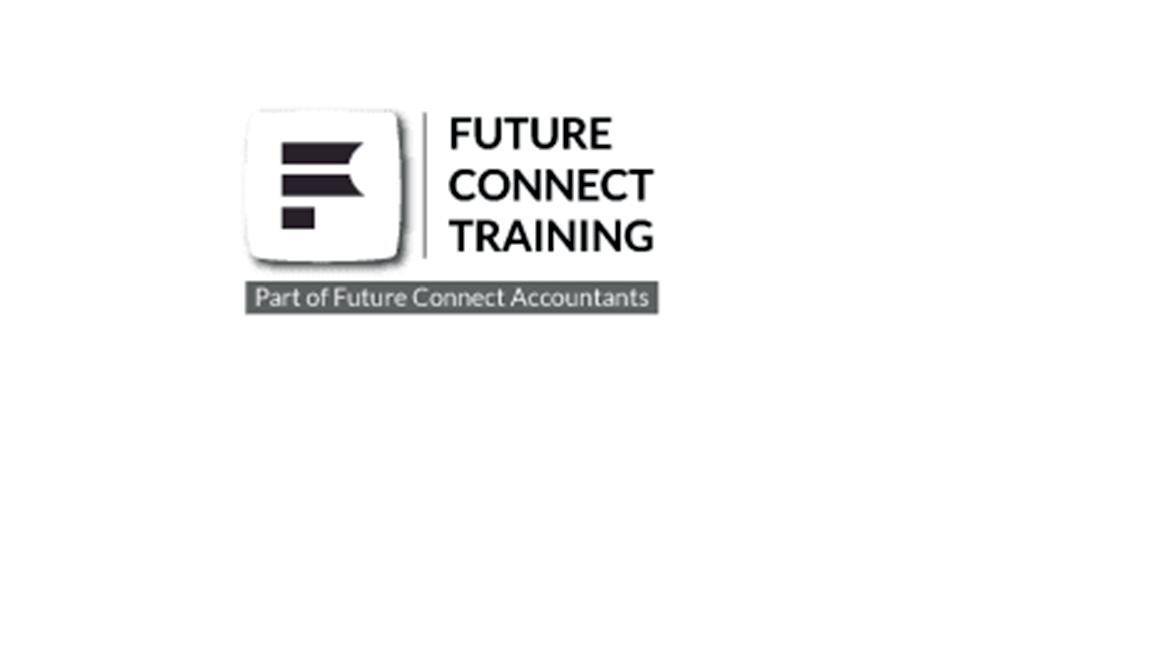
Train To Be Finance Manager Assistant Accountant
Accountant
With Average Salary of 38K to 45K
Now Available Online
Accounts Assistant Training Course
Train To Be
Finance Manager
Finance Assistant
Bookkeeper
With Average Salary of 26K 28K
Now Available Online
Customised Accountancy Training Course
Train To Be
Finance Controlling
Finance Management
Bookkeeper





With Average Salary of 18K to 38K+
Now Available Online
AAT Level 2 Foundation Certiicate in Accounting AAT Level 3 Advanced Diploma in Accounting AAT Level 4 Professional Diploma in Accounting Prepare Yourself For a GREAT Accounting Career Bridge The Experience gap between AAT Theory & Practice Now That’s an Education For your Successful Accounting Job! AAT Qualiications With Integrated Practical Accountancy Training
: Online info@fctraining.org
London : Birmingham : Manchester
Learn Sage, Quickbooks, Xero, Payroll, Advanced Excel & More High Quality CPD Approved Training Award Winning - Practical Accounting Training under Supervision of Chartered Accountant Firm
Capital ideas
Teresa Clarke explains how to calculate the working capital cycle
As part of your AAT Level 3 studies for management accounting techniques you will need to be able to calculate the working capital cycle.
To calculate the working capital cycle, we first need to calculate the following periods. These are usually calculated in days.
• Inventory holding period.
• Receivables collection period.
• Payables payment period.
In your exam, you will be given information regarding a business and will need to be able to calculate the working capital cycle. Try not to rely on remembering the formulas, but instead look at the logic in the task.
Example
Here is the information you will need. The task may give you information that is not relevant, so make sure you know what you are looking for.
Inventory £60,000
Trade receivables £40,000
Payables £30,000

Sales revenue £800,000
Cost of sales £250,000
Inventory holding period
The formula for this is inventory/cost of sales x 365, but let’s understand why. We are looking for how long the inventory is held for before it is used. The first piece of information is inventory. Then we look at the information given. Inventory is part of the cost of sales, so we need this piece of information next. We want the average holding period for the whole year which is 365 days.
£60,000 / £250,000 x 365 = 87.6, rounded to 88 days.
Trade receivables collection period
The formula for this is trade receivables/sales x 365, but let’s understand why. We are trying to find out how long, on average, it takes customers to pay us. The first piece of information is the trade receivables. Then we look at the information given. Trade receivables is money that the customers owe us from sales, so we use the sales revenue next. We want the average collection period for the whole year which is 365 days.
£40,000 / 800,000 x 365 = 18.25, rounded to 18 days.
Payables payment period
The formula for this is payables/cost of sales x 365, but let’s understand why. We are trying to find out how long, on average, it takes us to pay
our suppliers. The first piece of information is payables. Then we look at the information given. We are paying suppliers for the purchases we have made from them, and this is part of cost of sales. We want this payment period for the whole year which is 365 days.
£30,000 / 250,000 x 365 = 43.8, rounded to 44 days.
Once we have all this information, we can work out the working capital cycle by thinking about the assets and liabilities.
Inventory is an asset because it is something we own which can be converted to cash when sold.

Trade receivables is an asset because it is money we will receive.
Payables is a liability because it is money we owe to others.
Inventory holding period: 88 days
Trade receivables collection period:18 days
Payables payment period: 44 days
Now we can add together the assets, inventory, and trade receivables, and deduct the liabilities, the payables.
88 + 18 – 44 = 62 days
Working capital cycle = 62 days
Now try a question from one of your study books.
• Teresa Clarke FMAAT. If you like my way of explaining things, you might like my workbooks, which are all available from Amazon in both paperback and as eBooks. The links to all my workbooks can be found at https://www. teresaclarke.co.uk/
Award-winning AAT courses and apprenticeships
16 PQ PQ Magazine September 2023 AAT Level 3
mindful-education.co.uk/students
Flexible learning to suit your lifestyle



















ACCOUNTANT with AAT BECOME AN Benefit from an excellent career, with an average salary of £30,000 a year* *Source: Payscale www.e-careers.com (accounting) +44 (0) 20 3198 7600 Mon - Fri | 9am - 6pm Excellent Why study with us? ✓ Selected courses include Online Training, Books, Live Online Classes and Tutor Support ✓ One of the largest AAT providers in the UK ✓ We have trained over 10,000 AAT students ✓ We won’t be beaten on price! ✓ High Pass Rates ✓ 0% finance payment plans available. VALUED BY EMPLOYERS AND BUSINESSES AROUND THE WORLD PRICE MATCH GUARANTEE* We will match like-for-like price.



Achieve professional recognition from wherever you are. The CGMA ® Finance Leadership Program (CGMA FLP) is a digital-first learning and assessment platform that lets you get the CGMA designation anytime, anywhere and at your pace. With the CGMA FLP, you can fit your learning into your schedule, sit with fewer formal exams and uncover a new realm of career possibilities upon completion. Founded by AICPA® and CIMA®, the Association of International Certified Professional Accountants® powers leaders in accounting and finance around the globe. © 2023 Association of International Certified Professional Accountants. All rights reserved. AICPA and CIMA are trademarks of the American Institute of CPAs and The Chartered Institute of Management Accountants, respectively, and are registered in the US, the EU, the UK and other countries. The Globe Design is a trademark of the Association of International Certified Professional Accountants. 2301-771946 Find out more at cimaglobal.com/CGMAFLP
Top study resources for learning success
Getting skilled for exam success requires you to aggregate various components that will sharpen your performance. But where can you find trusted resources to get you exam ready?
Let’s examine five top CIMA resources to get you up to speed.
Exam answer walkthroughs Walkthroughs of real exam answers, assessed by examiners from the three Case Study Exams, analyse differences between candidates who passed or failed. The comparison between real answers – good and poor – helps illustrate the marking system and where marks can be won and lost.
Here’s an Operational Level Case Study
Exam question example: ‘Explain the decision tree and how we should use it to make our decision about which agent to use’.
Passed answer – The candidate demonstrated strong technical knowledge of decision trees and the topics tested through detailed explanation and applied their technical understanding to the given scenario.
Failed answer – The candidate demonstrated a lack of technical understanding and knowledge of decision trees in the context of the given scenario and failed to apply the theory of decision trees to the scenario.
And a Management Level Case Study Exam question example: ‘Firstly, prepare briefing notes for me to use in my presentation to the Board. Please use {given note} and consider both financial and non-financial factors’.
Passed answer – The candidate demonstrated a good technical understanding of investment appraisal. They also provided a theoretical overview of each investment appraisal technique.
Failed answer – The candidate’s technical understanding of capital rationing was incomplete. Their four financial factors mentioned were assessed as a mere repetition of the scenario information provided. There was no discussion regarding application of technical knowledge to the scenario information.

Finally, a Strategic Level Case Study Exam question example: ‘Firstly, I need you to evaluate the claim by Diamond Chip that it can prevent any further unauthorised access to Roundabout’s system’.
Passed answer – The candidate paraphrased the sub-task requirement into a title that demonstrated their understanding
of an expectation to evaluate the claim by Diamond Chip. A clear title (and introductory paragraph) provided structured focus for the rest of the answer, including content and answer planning.
Failed answer – Although the candidate demonstrated some structure planning of the answer through sub-headings and key points, they failed to plan the content. Content planning helps you to think through all the points and produce a logical and comprehensive answer, applying technical knowledge to the scenario’s specifics.
Application skills
Application skills are essential for exam success. Our application skills video resource offers a step-by-step guide on how to demonstrate such skills in CIMA’s CGMA Case Studies. The video illustrates the difference between a good pass, a borderline pass and a fail.
The difference between a pass and a fail is the ability to apply theoretical concepts to the given scenario and to consistently incorporate this application into your answers.
The resource also highlights the thought process and techniques to follow – with five best practices – to make application second nature.
Interview with Case Study Examiner
This exclusive interview with our CIMA Case Study Examiner provides a unique insight into what the examiner is looking for. This is a rare opportunity to hear directly about what examiners want to see when they mark your paper.
The examiner talks about why it’s crucial to be familiar with the pre-seen information. She also discusses using resources to develop exam and application skills and answer planning.
Valuable tips include making sure you “answer the question that’s been asked, not what you hope has been asked”.
Time management in Objective Test exams
Time management is one of the biggest challenges in an Objective Test exam. Being well-prepared and knowing how you’ll approach the exam in advance can help you perform better on exam day.
The time management techniques in Objective Test exams is a comprehensive video resource. You’ll learn time management techniques to help you succeed in your CGMA
Objective Test exams.
Try to plan how you would like to manage your time in the exam. The earlier you can start practicing these management skills, the more exam ready you will be.
Resitters guide
The resitters guide is an extensive resource to help you prepare for a retake and bounce back after an exam set back. It’s very common not to know how to move forward after an exam disappointment. Whether you’re resitting an Objective Test exam or a Case Study exam, the resitters guide will help you rebuild confidence and plan ahead to achieve your goal.
This must-read guide will give you the tools to understand what happened and help you prepare with relevant tips to address your needs. You can easily find the CIMA resources specific to your needs in one document with plenty of targeted advice.
AICPA & CIMA provide a wide range of support materials, including tips from examiners to support you in your studies.
For further resources, explore the CGMA Study Hub and view the various categories relevant to your learning level. Good luck!
• Nasheen Wuisman, Senior Manager of Global Academic Progression at AICPA & CIMA, together
as the
Association of International Certified Professional Accountants
PQ 19 PQ Magazine September 2023 CIMA spotlight
Nasheen Wuisman guides you through the CIMA resources available to you, all designed to help you get that all-important pass
The CBA pass rates are…
The latest assessment pass rates are in, and here they all are – both AQ2016 and Q2022
AAT has released the latest worldwide pass rates for the year ending 31 December 2022. The computer-based assessments (CBA) pass rates are only published for assessments that have been available for at least 12 months or where there has been a minimum of 500 sittings. AQ2016
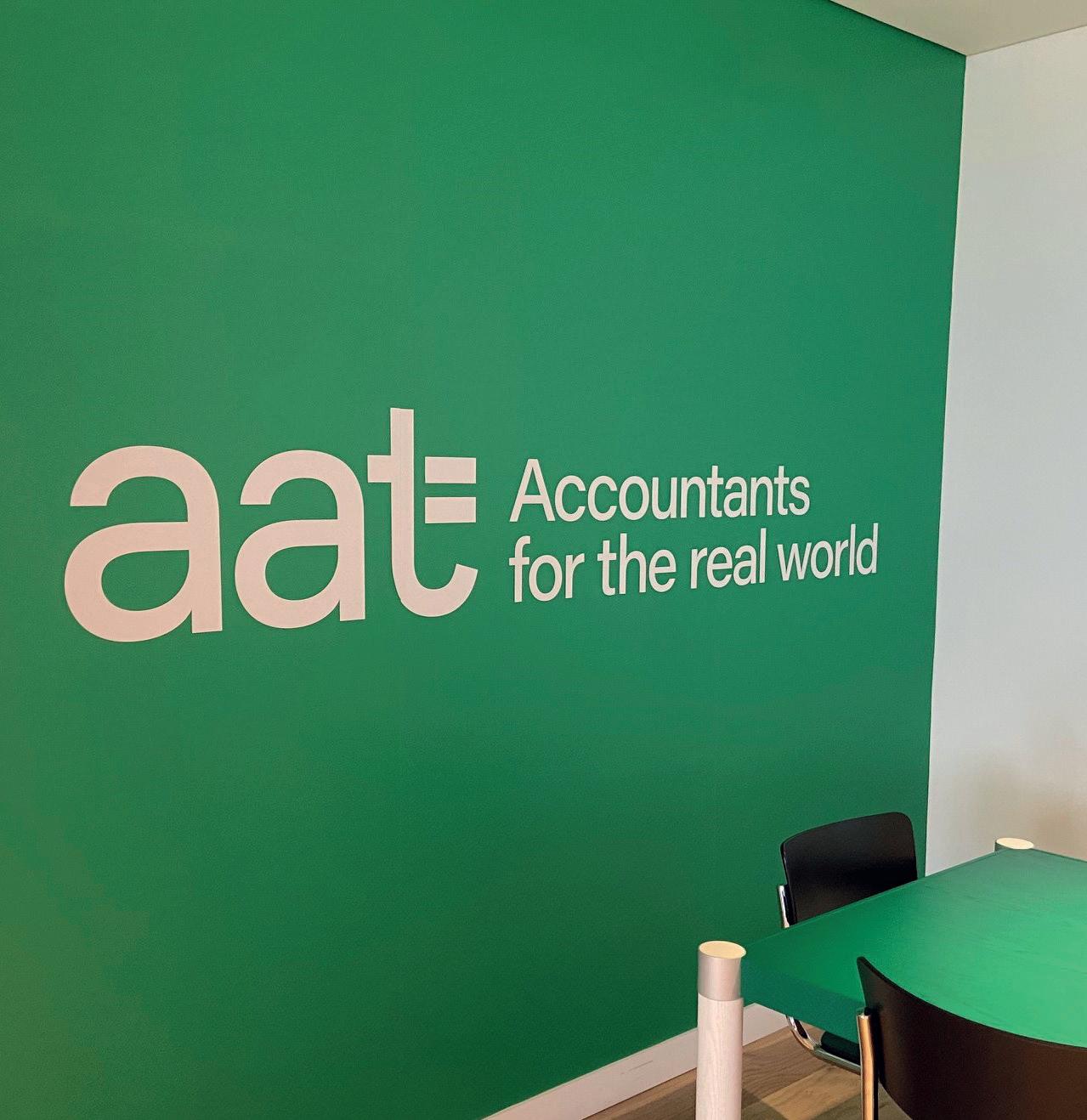
*Please note that the information in the above table refers to the pass rates based on the CBAs only and not achievements rates for the qualification. It is not possible for AAT to calculate and provide qualification achievement rates.
The following table shows the pass rates for the End Point Assessments for year-ending 31 December 2022.

20 PQ PQ Magazine September 2023 AAT pass rates
Level Assessment name Short code Worldwide Access Access to Accounting Software AASW 81.2% Access Access to Business Skills ABSK 94.3% Access Access to Bookkeeping ATBK 94.8% FoundationBookkeeping Controls BKCL 66.1% Foundation Business Communications, Personal and Learning Skills BPLS 92.9% FoundationBookkeeping Transactions BTRN 86.7% FoundationElements of Costing ELCO 86.3% FoundationFoundation Synoptic Assessment FSYA 85.2% FoundationIntroduction to Business and Company Law IBLW 62.1% FoundationIntroduction to Payroll INPY 91.8% FoundationUsing Accounting Software UACS 86.3% Advanced Advanced Diploma Synoptic Assessment ADSY 48.2% Advanced Advanced Bookkeeping AVBK 67.9% Advanced Final Accounts Preparation FAPR 79.7% Advanced Indirect Tax IDRX 82.9% Advanced Management Accounting: Costing MMAC 86.4% Advanced Spreadsheets for Accounting SPSH 78.1% ProfessionalBusiness Tax BSTX 72.5% ProfessionalCredit Management CDMT 69.3% ProfessionalCash and Treasury Management CTRM 74.0% ProfessionalExternal Auditing ETAU 73.7% ProfessionalFinancial Statements of Limited Companies FSLC 67.7% ProfessionalManagement Accounting: Budgeting MABU 70.8% ProfessionalManagement Accounting: Decision and Control MDCL 60.4% ProfessionalProfessional Diploma Synoptic Assessment PDSY 56.9% ProfessionalPersonal Tax PLTX 62.8% AccessFoundationAdvancedProfessional CBA pass rate* 90.8% 80.2% 72.5% 65.1%
CBA pass rates
End Point Assessments
End Point Assessments Short codePercentage AAT Accounts/Finance Assistant End Point Assessment EPA In-tray test ITAF 57.6% Structured interview SIAF 83.3% AAT Assistant Accountant End Point Assessment Advance Diploma Synoptic assessment ADSY 57.1% Assistant Accountant Portfolio and Reflective AARF 96.2% AAT Professional Accounting Technician End Point Assessment
Graded qualifications


Qualifications awarded by AAT include four graded qualifications. The table below shows a summary of the grades awarded for each qualification between 1 March 2022 and 28 February 2023.
The provisional date for the publication of the next set of CBA pass rates is the end of September 2023.
Qualifications 2022 CBA pass rates
Detailed in the table below are the worldwide pass rates for computerbased assessments (CBA) for the 12 months ending 31 December 2022.
Pass rates are only published for assessments that have been available for at least 12 months, or where there has been a minimum of 500 sittings. Pass rates for units within the newly launched Qualifications 2022 (Q2022) are included where they have met the minimum of 500 sittings.


The pass rates shown are the rates for assessments sat as part of the pilot and between 1 September and 31 December 2022.
Please remember that the new qualifications are very different to their AQ2016 counterparts, both by way of content and assessment approach. For this reason, you should avoid making direct comparisons between Q2022 and AQ2016 pass rates. Also, since the Q2022 pass rates are being released at an early point in the Q2022 lifecycle, they should only be used as a guide at this point; AAT would expect pass rates to change as they get through their embedding period.





AAT are also pleased to let you know that it has released interim Chief Examiner reports for several Q2022 units. These reports are based on a relatively low number of results released at this early stage in the qualification lifecycle.
Full Chief Examiner reports will be available in due course, when the qualifications have been live for more than one academic year. In the meantime, AAT hopes that the interim reports will give you an early indication of areas of strength and weakness for learners, allowing tutors to tailor any additional support for students.
PQ 21 PQ Magazine September 2023 AAT pass rates Professional Diploma Synoptic assessment PDSY 70.1% Professional Accounting Technician Portfolio and Reflective PPRF 93.5%
Qualifications and grades awarded Pass MeritDistinction Foundation Certificate in Accounting 9% 50% 41% Foundation Diploma in Accounting and Business 23% 68% 8% Advanced Diploma in Accounting 24% 58% 18% Professional Diploma in Accounting 54% 43% 2%
LevelAssessment name Short code Worldwide 1 Bookkeeping Fundamentals BKFN 90.7% 2 Introduction to Bookkeeping ITBK 86.6% 2 Principles of Costing PCTN 68.8% 2 Principles of Bookkeeping Controls POBC 72.5% 3 Business Awareness BUAW 61.9% 3 Financial Accounting: Preparing Financial Statements FAPS 58.8% 3 Tax Processes for Businesses TPFB 52.9% 4 Applied Management Accounting AMAC 67.8% 4 Drafting and Interpreting Financial Statements DAIF 71.8%
AAT: What level should I start at?
Identify the right AAT qualication for you with Premier Training’s Skills Checks.


Your free online Skills Check is automatically sent to a Premier Training tutor who will contact you on which AAT level to study rst. Head to our website at www.premiertraining.co.uk for more details.

You can start AAT distance learning courses on any day and t your studies around your job and other commitments.
Interest-free instalment plans are available for all courses as well as FREE Xero training and certication.
Get Started Today
Start your studies the same day24 hour online access with instant access to tutor support.
Learning Resources

Award winning learning resources including printed books, eBooks & e-learning, videos and quizzes.

Assignments
Prompt marking turnaround –marked by a tutor (not a computer).
Xero Advisor Certication

Premier Training has teamed up with Xero and is pleased to offer the Xero Advisor Certication Equivalency Course FREE OF CHARGE to anyone who enrols.
01469 515444 AAT Distance Learning AAT Distance
info@premiertraining.co.uk
Consideration: anything, anywhere, all at once?
Consideration is a regularly examined topic in LW ENG. Marina Matyuhina wants to help students understand this basic element in contract law: what is good consideration, and when and how it may be paid?
be valid consideration. Knowing this may not always stop a person from engaging in a criminal ‘deal’, but they won’t be able to enforce it in court.

Fourth, a special exception relates to new share issues by companies since they are also contracts between the company and subscribers. A company issues shares, subscribers pay the price as consideration. For this particular consideration, it is not enough to be simply sufficient. It must be adequate in the sense that it may not be lower than the shares’ nominal value. This is not always adequacy from the market price point of view, but adequacy of complying with the Companies Act 2006 restrictions.
Anywhere?
Consideration is a necessary part of every contract, except for contracts by deed (also known as specialty contracts or contracts under seal). These contracts impose a legitimate covenant (or promise) on one party and place no obligations on the other. They must be made in writing and signed in order to be valid, for example a regular donation to a charity.
The key rule governing the value of consideration is that it must be sufficient and does not have to be adequate. Common law protects the parties’ freedom to contract on whatever terms they see fit. For example, if a husband wants to rent a house to his wife for £1, he may do so (Thomas v Thomas 1842). Or if a chocolate wrapper is added to an otherwise insufficient price for a music record, it makes up the difference (Chappell & Co Ltd v Nestle Co Ltd 1959). And even if a university rents a piece of land from the city council for a peppercorn a year, it is a lawful deal. The latter is not a metaphor but an actual peppercorn! (Google ‘peppercorn rent university’). The point is that each party must bring something of value, not necessarily of adequate value.
Also, the value can be ‘positive’, such as granting some right, benefit or interest, or ‘negative’, such as agreeing to certain forbearance, detriment or loss. ‘Positive’ prevails in most contracts while ‘negative’ is less common. For example, it might be waiving a right to go to court if the other party pays the out-of-court settlement.
Anything?
But a legal key rule wouldn’t be complete without exceptions! These four are useful to know in the exam.
First, fulfilling existing statutory duties is
not ‘sufficient consideration’. The law does not see any value in doing what a person is already obliged to do; except when they exceed their obligations. For example, police officers contracted to carry out their duties outside normal hours and locations were exceeding their obligations (Glasbrook Bros Ltd v Glamorgan County Council 1925).
Second, fulfilling existing contractual duties is also not ‘sufficient consideration’, unless the other party receives some practical benefit from it. The illustrative cases often involve a contractor struggling to meet the deadline and asking for an additional fee to complete the work on time. This additional fee will only be good consideration if the employing party gains some material benefit from having the deadline met. For example, they avoid paying fines to their own customers or save any other costs they would have incurred had the work not been finished on time.
Also, fulfilling an existing contract can be good consideration if it supports a promise from a third party. Imagine that you have a summer internship contract with an audit firm, but then decide you don’t like hard work. Your friend promises to pay you £50 if you complete the internship. You completing your internship is good consideration in a contract with your friend, even though you are already contracted to do this work by the firm.
Third, performing an illegal act may not
All at once?
Consideration can either be paid at the moment of making the contract or at some future time. In the first case, it is called executed consideration and is common for most daily transactions, e.g., buying groceries at a supermarket. In the second case, when the parties (or one of them) only make ‘a promise to pay’, consideration is called executory.
The only time when consideration may not be paid is past. That is not good consideration. If you had gifted a bicycle to your friend some time ago and now wish to count it as part of the payment for the car that you are buying from them, the courts won’t support you.
Also, if a party eventually paid only part of the amount, it is usually not discharged from the rest of its debt. If there was no genuine agreement to receive a lesser amount, no third parties involved in making the settlement, and no other events making the part-payment just and equitable, then the creditor may sue for the rest.
Consider it done
Consideration rules in practice may involve more complex elements but knowing these basic principles is sufficient to boost your chances of getting the right answers in the exam.
• Marina Matyuhina is an experienced online tutor
PQ 23 PQ Magazine September 2023 ACCA law
SBL – the changes
Here’s ACCA’s summary of the changes to Strategic Business Leader (SBL) for this September’s sitting
of the pre-seen material prior to the exam, which will enable them to better manage the exhibits which will be provided in the actual exam and thus help them deal with the information in a more effective way.
However, the pre-seen information will not contain any indication or clues as to what type of questions might come up in the exam and spending time hypothesising on this is not recommended by the examining team.

Other format changes
From the September 2023 exam session there will be changes to the ACCA’s SBL exam. This will help ensure that the exam will provide closer alignment to the workplace skills students need going forward and to continue to meet the needs of employers. The main changes will occur in the format and the length of the exam.

The old SBL exam involved students reading multiple pages of case study information that they had to synthesise, and then produce solutions to multiple tasks in a four-hour exam. The exam from September 2023 onwards will have its duration reduced from four hours to three hours and 15 minutes, which brings it in line with other Strategic Professional exams.
A new addition to the September 2023 will be the provision of pre-seen information, which will be released to tutors and students two weeks before the exam. The purpose of this information is to enable students to familiarise themselves with the context of the fictional organisation that the case study exam will be based on and the industry in which it operates. By providing this information, students will be able to better understand and use the further information that will be contained in the exam
exhibits provided on the actual day of the exam. This should enable students to give more focus to demonstrating their strategic thinking and professional skills.
As SBL remains a closed book exam, students will not be allowed to take their own annotated copy of the pre-seen material into the exam.
In the exam, a copy of the pre-seen material will be available for reference purposes. On exam day a well-prepared student should be able to navigate the pre-seen information much more effectively as a result of its familiarity.
The pre-seen information will be made available to students via the exam planner within myACCA.

What the pre-seen is not
It should be emphasised that there is no expectation for students to undertake further research, as the exam is based on a fictitious organisation and any tasks in the actual exam will relate to this organisation and not to any general research that students may have independently undertaken.
The purpose of this change is to ensure that students have full familiarity with the contents
Number of exhibits provided in the exam: In the exam students will be provided with exhibits that will present new information to them. As a result of pre-seen information being released two weeks earlier, the number of exhibits students will need to deal with will be significantly reduced. The format of these exhibits will continue to represent styles used in previous exams, including memos, emails, briefing notes, interview extracts, webpages, financial reports, etc..
Compulsory tasks: From September 2023 the exam will have three compulsory tasks compared with the previous exam format, where there was no set number of tasks. Each of the three tasks will have a varying number of parts and total marks.
Professional skills: All five professional skills will continue to be tested and will still be worth 20 marks in total. However, due to the reduced number of tasks and exam time, each professional skill will be tested only once and will be worth four marks each. There will no longer be two- and three-mark professional skills tasks.
Response area: The SBL exam will no longer be answered as a single requirement in one word document. Going forward, each task (or part of the task requirement, where appropriate) will be completed as a separate requirement in a separate response option or options. As a result, the exam workplace area will look significantly different in that only one task will be shown at a time, and it will be no longer possible to view all the tasks together.
• Thanks to ACCA for this article
24 PQ PQ Magazine September 2023 ACCA SBL exam
Registered Tuition Provider
How to use the SBL pre-seen
ACCA’s Ann Lamb explains what the changes to the SBL exam mean for students and how they should prepare for the exam.
This September marks a big change for the Strategic Business Leader (SBL) exam, with students having access to the SBL pre-seen two weeks before the exam. The pre-seen will contain information about the business activities of the case study organisation used in the exam and the industry in which it operates.
The importance of planning ahead
The number-one piece of advice is to plan ahead! Students should familiarize themselves with the pre-seen as much as possible before exam day. The important contextual information contained in the pre-seen will help students better understand and apply the further information that will be provided in the exhibits, which will continue to be included in the exam.
Students who plan ahead can spend more time picking up marks by demonstrating their strategic thinking and professional skills in the exam rather than on reading the background information.
Doing further research
Further research may help you understand the terminologies and activities which appear in the pre-seen. However, all the relevant information will be contained either in the pre-seen or the exam itself. Furthermore, all exam tasks will relate to this organisation specifically and not to any further research you may have done separately. There is therefore no requirement to do any further research on the industry or the fictitious organisation itself.
Study the whole syllabus
Sorry, the pre-seen will not provide clues as to what will be examined within the exam tasks! Therefore, whilst it might be tempting to do so, avoid speculating on areas of the syllabus that may come up based on the pre-seen. It’s better to spend your energy revising the full syllabus rather than trying to second guess the examiners.
Make sure you practise
Take the time to attempt the specimens, practice exams and mock exams, which are available on our Practice Platform. We know that students who incorporate question practice into their revision are far more likely to do well in their exam.

In the exam itself
Considering that much of the background information has been provided in advance, the exam time has been reduced from four hours to 3 hours 15 minutes. Whilst you will still have access to the pre-seen on exam day for reference, you won’t be allowed to refer to your own annotated copy or any other materials brought into the exam.
Remember, that you’ll want to use the bulk of your exam time answering the exam tasks and reviewing the exam exhibits – so familiarizing yourself with the pre-seen in advance will maximise your potential for success.
Finally, there’s no need to consider the effects of Covid-19 for the purposes of the exam. Due to the varied effects of Covid-19 globally, the Pre-seen and exam itself will
not consider any specific Covid-19 related situations affecting any industry, organisation and government.
Where and when to access the pre-seen Students will be able to download the SBL pre-seen two weeks before exam day. We’d recommend that students download the preseen at this earliest opportunity. The pre-seen, as well as a pre-seen guidance document, can be downloaded from their booked SBL exam details on Exam Planner. Students will receive an email to let them know when the pre-seen is available and will be sent regular reminders in the lead up to the exam if they haven’t yet downloaded it from Exam Planner.
We strongly recommend that all students download the pre-seen via Exam Planner rather than potentially viewing it from second-hand sources. Doing so will help ensure they’re viewing the correct pre-seen information and will reduce the number of emails they’ll receive from us.
And finally…
If you are taking the exam this September, I’d like to wish you the very best of luck. The SBL study resource section on our website has a wealth of resources to help you prepare for the exam, including pre-seen guidance.
I’d encourage you to check that out and last but not least… make sure you download and familiarise yourself with the pre-seen, which will be available from 22 August.
• Ann Lamb, Director of Professional Qualifications at ACCA
PQ 25 PQ Magazine September 2023 ACCA SBL exam
Changes at HMRC highlight the real value of being agile
With less than three days’ notice to taxpayers, HMRC closed the VAT registration helpline (on 22 May), leaving many in limbo with their VAT registration queries. It was swiftly followed by news on 9 June of the seasonal closure of the Self-Assessment (SA) tax helpline, which is now closed until at least 3 September.
The news was tempered somewhat by the reopening of the HMRC Agent Dedicated Line (ADL), but the changes have ultimately left individuals and businesses with significantly less direct access to HMRC advice services. HMRC cited a desire to better utilise resource and focus it on service delivery rather than telephone support, but many are concerned

that these changes may result in late filing or incorrect filing, and therefore fines, particularly for complex cases.
For those in practice, what these changes highlight is the necessity of staying abreast of government changes and remaining agile to unexpected modifications to existing frameworks. Being last minute, they can and will have a tangible impact on individuals and businesses, and it will become the responsibility of their accountant to help them weather the changes.
Here’s how accountants can stay ahead:

• Join a professional accountancy body which will support awareness of key topics by issuing emergency bulletins when relevant.
They will also issue updates on any core regulatory or compliance changes too, with opportunities to responsively upskill.
• Review the HMRC customer charter which sets out what it expects from businesses and individuals, and vice versa. This will help guide your expectations and also protect yours and your clients’ interests.
• Follow best practice guidance and utilise HMRC frameworks including being the appointed agent for your client. This will support continued access to HMRC when needed.
• Embrace digitisation and develop a digital mindset supporting not only the mandatory scope of Making Tax Digital, but offering significant opportunity for efficiency gains as a business. Real-time reporting is key to operational efficiencies and offers businesses the capacity to deliver change and improvement across the board. Digitisation should be embraced for its own sake, while having the added benefit of preparing the business for future phases of MTD.
• Extend internal deadlines to account for a slowing in HMRC resource and output. Ultimately, if you encounter complex queries that delay filing, it will remain your responsibility to file on time. Adopting a proactive approach will be essential to ensuring on-time filing.
• Thanks to the Institute of Financial Accountants (IFA) for this article
26 PQ PQ Magazine September 2023 IFA spotlight
ACCA Careers is dedicated to helping ACCA students develop their careers.
Visit jobs.accaglobal.com today
With hundreds of entry level global job opportunities and over 400 career advice articles, we’re here to help you every step of the way.
Your guide to the optional units at AAT Level 4
Alan Dawson provides his guide to the optional units for AAT Level 4 students
cash within a business. It ensures the learner can make an informed decision about financing and investments.
Students will learn how to prepare cash forecasts/budgets and how to deal with shortfalls and surpluses. They will learn about the different methods of financing and how to avoid the risk of financial failure. They will also look at the different types of investment, both short term and long term.
This unit is mainly for those intending to work in the finance department of larger businesses.
The assessment for this unit is a mixture of calculative tasks and written tasks, roughly in equal measure.
Credit and Debt Management (CRDM)

This unit is about credit control systems. It covers the techniques that can be used to assess credit risks and the systems that are used to collect any overdue debts.
Students will learn how to use performance measures relating to liquidity, profitability and gearing to determine creditworthiness. They will also cover liquidity management, bankruptcies and insolvencies. Invoice discounting, factoring and credit insurance are also covered.
At Level 4 of the AAT Accounting pathway there is a requirement to complete three mandatory units: Applied Management Accounts (AMAC), Drafting and Interpreting Financial Statements (DAIF) and Internal Accounting Systems and Controls (INAC).
Students must complete these in order to pass the qualification. In addition, there is the requirement to complete two optional units. Students must select two units out of a choice of five.
Choosing the right option means students will need to know the content of each unit and how this will help them in their future career.
Business Tax (BNTA)
This unit is about UK tax relevant to businesses. It covers tax for sole traders, partnerships, and limited companies. Students will learn how to prepare tax computations, the tax treatment of capital expenditure, and how to adjust profits for tax purposes.
The taxes covered will be income tax, national insurance, and corporation tax. Tax advice is an important part of many accountancy roles, and provides opportunities to give businesses tax advice and planning. Completing tax returns can be a lucrative income for many tax advisers and accountants.
The assessment is mostly calculative with only minimal written tasks
Personal Tax (PNTA)
This unit is about the three most common taxes that affect taxpayers in the UK; income tax, capital gains tax and inheritance tax. Within income tax, the unit covers employment income, income from investments and income from property.
Capital Gains Tax is a tax on selling personal assets and Inheritance Tax is a tax on the transfer of wealth (most commonly associated with the transfer of assets when someone dies). The fundamental principles of these two taxes are covered.
The unit equips the student with the knowledge to advise clients on their employment income as well as tax advice on savings, selling personal assets and renting property to tenants. The successful student will also be able to give advice on selling personal assets (particularly selling a property that is not the taxpayer’s main home) and the sale of shares. Advice on how money is transferred on death is also a feature of this unit.
This unit is a good complementary unit to the BNTA unit, giving the learner an overall understanding of the main taxes levied on businesses and the individual.
The assessment for this unit is predominantly calculative tasks with only minimal written tasks.
Cash and Financial Management (CSFT)
This unit is about the importance of managing
This unit is best for those who intend to work in the credit management department of larger businesses.
The assessment for this unit is predominantly written tasks with minimal calculative tasks.
Audit and Assurance (AUDT)
This unit covers the legal and professional rules of audit and assurance services. It covers the planning and risk assessment of the audit as well as the final audit report.
The content will look at the techniques used in sampling, and assurance.
This is the only unit where completion does not mean that the student can undertake paid work on their own. An AAT qualified member cannot undertake an audit without supervision (unless they have further qualifications).
This unit is only useful to those who are (or intend to be) part of an audit team, or those who intend to undertake further qualifications in order to lead an audit. As a result, this is the least popular of the optional units.
The assessment for this unit is almost entirely written tasks.
This guide is given as a general view of each of the optional units at Level 4. Choosing the right optional unit can affect your future career, so please ensure you choose the one most appropriate to what you want to do in the future.
If you require further advice and guidance, please contact your course tutor.
• Alan Dawson is a tutor at Premier Training
PQ 27 PQ Magazine September 2023 AAT optional units
Are you up to the tasks?
AAT recently published some key facts about the advanced synoptic and how to improve your performance. So what do you need to know?
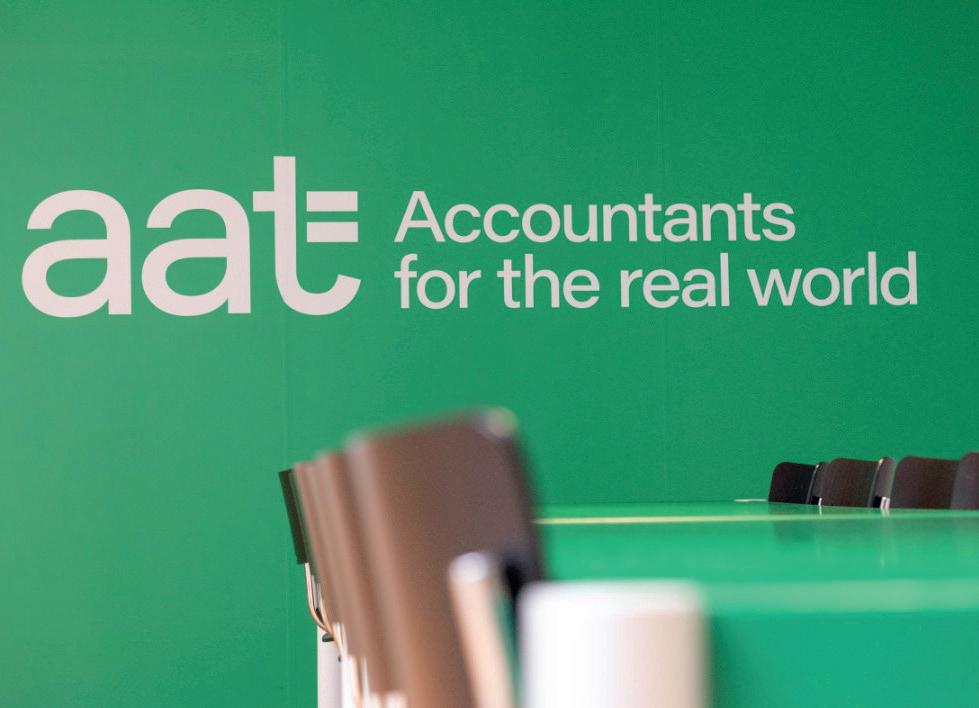
The current pass rate of the AAT advanced synoptic is 48%, and on average students took 83% of the time available to complete the assessment.
Tasks 1, 3 and 4 showed the weakest performance. The biggest disparity in terms of time spent against marks available was in Task 3, which was most in need of improvement.
Let’s look at these tasks.
Task 1 assesses the understanding of the relevance and use of the ethical code, how to act ethically in each situation, and reporting unprofessional behaviour.
Weaknesses in the performance include:
• Identification of ethical threats.
• Classification of appropriate ethical threats in each situation.
For task 1, students need to know:
• The effect of an accountant acting ethically on the level of confidence that the public has in all accountants and on the probity and reputation.
• The importance of an accountant always complying with the ethical code.
• About the ethical code’s objective of maintaining the reputation of accountancy
as a profession.
Task 3 assesses the knowledge of the application of the understanding of the inter-relationship between the financial and the management accounting systems of an organisation and how they can be used in decision making.
This is an open response task that requires students to write their own answers, which are marked externally by AAT. While there are no marks awarded or deducted for spelling and grammar, it is important that responses are
clearly written.
Task 4 assesses the knowledge of the application of ethical and accounting principles when preparing final accounts for different types of organisations, how to develop ethical courses of action, and how to communicate relevant information effectively.
This is an open response task which requires students to write their own answers which are marked externally by AAT. Whilst there are no marks awarded or deducted for spelling and grammar. It is important the responses are written clearly.
Weaknesses for Task 4 include:
• Ensuring that sufficient detail is given in responses, in particular ensuring that the response is relevant and linked to the scenario.
• The use of generic comments in respect of the content and underlying principles for the preparation of financial statements.
• Reading the question and answering questions about the accounting equation and how it links to both financial statements and double entry bookkeeping.
Have you discovered the benefits of Study Hub yet?

PQ 28 PQ Magazine September 2023 AAT advanced synoptic
Our new digital platform is here to help you enhance your learning and achieve even better exam results. It brings your revision to life and helps improve your knowledge with study chapters, flashcards, quizzes and practice questions. Study Hub makes exam preparation easy. Try it out today. #ACCAStudyHub www.accaglobal.com/studyhub
YOUR SEPTEMBER TIPS

Another set of ACCA exams are just around the corner. Here is the latest updated guidance and tips for September sitting from BPP
Performance Management PM
Section A will have 15 two-mark OTQs on a wide range of topics. Expect a mix of calculation and discussion-based questions, note that there are no marks for workings in this section. Good time management is essential as it is easy to get caught up in a tough calculation which ultimately will only be worth 2 marks. Never be tempted to spend more than 5 minutes on any question in this section.
For section B there are three separate scenarios with five objective test questions on each scenario; each question is worth 2 marks. Questions are not dependant on each other and can be answered in any order. Each scenario could be a mix of topic areas or focused on one topic and will usually consist of two/three calculations and two/three narratives.
In section C there are two 20-mark questions, which could be from, but not limited to: budgetary systems, planning and operational variances, mix and yield variances and evaluation of the company performance (either as a whole, or on a divisional basis). Familiarity with the CBE software is important as you may be expected to use both a word processing and spreadsheet format for your answer. Learn standardised layouts for calculations such as variances, learning curves and limiting factors. This will save you time in the exam and mean that you are less likely to make mistakes. The split of marks tends to be approximately 40% calculations and 60% discussion, so don’t neglect the written elements of this paper. Make sure that you always fully explain your ideas. Interpretation and application are important skills that are tested in this paper so make sure you make full use of the scenarios that you are given in the exam.
Taxation TX (UK)
In section A there will be a wide range of topics tested as there are 15 OTQs. Tutors expect at least a couple of these OTQs to be devoted to the administration of income tax and corporation tax. So, candidates should ensure they are comfortable with the following:
• Due dates for the payment of income tax (including payments on account).
• Due dates for the payment of corporation tax (including instalments for large companies).
• Filing dates for the income tax and corporation tax returns.
• Penalties and interest for late payments and returns.
Other topic areas likely to be tested in section A of the exam are:
• VAT rules on registration, impairment loss (bad debt) relief, and the SME schemes relating to cash accounting, annual accounting and flat-rate schemes.
• Inheritance tax due on lifetime transfers both in the donor’s life and on death.
• Statutory residence tests for individuals.
• Identification of groups of companies for corporation tax loss reliefs and gains.
• Trading loss reliefs for both companies and sole traders.
In section B the questions will be like those of section A, but there will be a longer scenario to deal with. This means a slightly different exam skill is necessary as you have more information to work through and each OTQ will require you to find the relevant information or data in that scenario. It is not a difficult skill, but you must practise an extensive range of section B questions from the practice and revision kit before attempting the real exam.
In section C you will face the longer, constructive response questions with scenarios and much more open requirements. Your answers will need to show not just sound technical knowledge, but also the application of that knowledge to the question you have been asked.
At least 50% of your revision time should be spent answering the section C questions in the practice and revision kit to build confidence and speed in a way that will also maximise marks.
1. Remember to learn your income tax and
corporation tax pro formas.
2. Calculations which require no more than two or three entries into your calculator can be included in the relevant cell of your pro formas (e.g. time apportioning a salary). Calculations which are more complex (e.g. company car benefits) need separate workings which are properly referenced (W1, W2 etc) and have a heading. Use the cell formulae to link the workings answer into your pro forma – then if you change the working the main body will be automatically update.
3. Attempt the narrative parts of the requirement – aim for as many sentences as there are marks, with each sentence containing something technical. Keep your paragraphs to no more than 3 sentences long.
4. Your exam will be in the CBE software and the spreadsheets have some differences to the software you may be accustomed to, so it is crucial you practice using the CBE software, especially for section C type questions.
5. Remember you cannot insert rows into the CBE spreadsheets. So, leave plenty of space
Continued on page 30
PQ 29 ACCA exam tips PQ Magazine September 2023
on the page (especially when setting up proformas). You may need to add something in and you can always go back and move workings up the page. Show workings down the page, rather than across the page as it makes them easier to mark. Well-spaced answers are also easier to mark – and you always want to keep the marker happy. We know that the two longest questions will focus on income tax and corporation tax. These are likely to include the following:
• Employment benefits.
• Property income.
• Relief for pension contributions.
• Adjustments to profit to arrive at trading income for both companies and sole traders – in past sittings we have seen a number of questions whereby you have to correct errors in computations included in the scenario.
• Capital allowance computations.
• Chargeable gains calculations.
Finally, remember the pass mark is 50% so you don’t need to be perfect. If you don’t know something have a guess and move on. Sometimes you have to do that in order to get follow through marks in section C questions. If you make a mistake, but then use that incorrect figure later in a subsequent calculation, then that’s fine – you can only lose the mark once. In sections A and B never leave an OTQ unanswered – have a guess if you don’t know the answer. It might be right!
Financial Reporting FR
Section A:
• 15 two-mark OTQs on a wide range of topics, including areas such as consolidation and interpretation of financial statements that will be covered in detail in section C.
• Expect a few questions on non-core areas (e.g. sustainability).
• Read the scenario, requirement and answer options carefully and ensure you capture the correct information from the scenario to answer the requirement.
• Don’t leave any questions unanswered –there is no harm in guessing if you are unsure of the correct answer. There is no negative marking.
Section B (case questions):
• Three separate scenarios with five OTQs on each scenario; each question is worth 2 marks.
• Each scenario could be a mix of topic areas (for example revenue and receivables are often related, as are PPE and leases) or focused on one topic and will usually consist
of two/three calculations and two/three narratives.
• Questions are not dependant on each other and can be answered in any order.
Section C (constructed response questions):
• Two 20-mark questions, one covering interpretations of financial statements and the other preparation of financial statements.
• One question is likely to be in the context of a single company and one in the context of a group, so you could be faced with a single company interpretation and a groups preparation or vice versa.
• Accounts preparation questions may require full financial statements or extracts – read the requirement carefully. Students expect questions on statement of profit or loss and statement of financial position, but should not forget comprehensive income, the statement of changes in equity, and the statement of cash flows.
• Both questions will require knowledge from other areas of the syllabus, particularly the accounts preparation question which will have a range of adjustments covering various areas.
• A single entity accounts preparation question from a trail balance or restatement of given financial statements with common adjustments being for depreciation, revaluation and current/deferred tax (including deferred tax on revaluations) plus a mixture of adjustments on other syllabus areas e.g. leases, substance over form issues, financial instruments (change in fair value or amortised cost), share issues, government grants, inventory valuation, and revenue recognition.
• Group accounts preparation questions will provide the separate financial statements (or extracts thereof) of the parent and relevant subsidiary(ies) and associate. Candidates should be prepared to set out the standard workings for goodwill, non-controlling interests, movements in net assets, retained earnings as those are commonly examined. Other common adjustments are intragroup sales of goods, intragroup sales of assets, dividends and fair value adjustments.
• ACCA has previously clarified that a consolidation accounts preparation question could include up to two subsidiaries and one associate which allows additional scope for examining the disposal of a subsidiary (including as a discontinued operation).

• Candidates continue to find the interpretations question challenging. In both single entity and group interpretation questions, candidates must avoid making
generic statements about the movement in ratios and instead focus on using the information in the question to, for example: identify key changes in the period (e.g. change in sales mix, closed down an operation, purchased a new subsidiary); identify transactions that would cause inconsistencies between periods or between balances (e.g. revaluation of assets for the first time, particularly if the revaluation was at the end of the period); identify any changes in accounting policies or estimates, or classification (e.g. one company presents expenses as part of cost of sales whereas another presents as part of administrative expenses).
• ACCA has previously clarified wording to emphasise the importance of the statement of cash flows in interpreting financial statements.
Audit & Assurance AA
In section A there will be three mini-case style scenarios, each with five 2-mark questions based on the scenario (30 in total). Each minicase question will test single topic areas of the syllabus and so will test syllabus areas A, B, C, D or E. Expect questions in section A to focus on areas A and E.
All three questions (one 30-mark and two 20-mark questions) in section B will be broken down into sub requirements and be scenario based. The majority of marks in each question will test syllabus areas B, C and/or D.
Areas expected to be tested in questions 16 to 18 include:
• Audit planning.
• Audit risk (identification and explanation of audit risks from a scenario and explanation of the auditor’s response to each risk).
• Internal audit.
• Internal controls (identification and explanation of deficiencies in internal control and the recommendation of suitable internal controls, or identification and explanation of direct controls and description of test of control).
• Audit procedures (substantive procedures & tests of controls).
General advice: Where questions are based on a scenario it is essential that you use the information in the scenario to score the identification marks and then develop this to score the explanation marks.
The exam often provides a table for you to complete your answer. For example, audit risk questions will have a table with two columns, one for ‘audit risk’ and one for ‘auditor’s response’ with each properly explained point being
PQ 30 ACCA exam tips PQ Magazine September 2023
Continued from page 29
worth one mark. Using this tabular approach encourages you to answer both parts of the question, therefore maximising your marks.
Pay attention to the verbs used in question requirements as these indicate the number of marks available. For example, the verb “explain” requires a sentence and will score one mark if properly explained whereas the verb “list” simply requires you to list out information with no further explanation and this will score 0.5 mark per point.
Finally, it is essential you read the Examiner’s Reports which are issued twice a year after the June and December exam sittings. These are an invaluable source of advice and provide a sample section A OTQ case style question as well as three constructed response questions from the March/June and September/December sittings. Not only do they provide the example questions but these are accompanied by a commentary from the examining team, which gives guidance on interpreting the question requirements and common mistakes/areas of weakness noted during the marking process. These reports can be found on the ACCA website: https:// www.accaglobal.com/uk/en/student/examsupport-resources/fundamentals-exams-studyresources/f8/examiners-reports1.htm
Financial Management FM
Questions in section A will often be knowledge based (testing your knowledge of key technical terms), and will balance out the questions in section B and C of the exam to make sure that all aspects of the syllabus are examined.
It is also likely that these questions will test your understanding of financial management and objectives (ratio analysis), as well as the economic environment and financial institutions topics (financial intermediation, fiscal & monetary policies).
Each section B case-study will be broken down into three 10-mark mini case studies. The case study will then be broken down into 5 separate 2-mark MCQs (so 15 questions in total). Areas expected to be commonly tested in this section are working capital management (e.g. the operating cycle, the impact of a change in credit period or accepting a factor’s offer), business or security valuations (e.g. methods of valuation), and financial risk management (currency risk and interest rate risk).
Section C’s two 20-mark questions will be broken down into sub requirements and be scenario-based. These two questions will focus mainly on syllabus sections C, D and E. Section C is working capital management, section D is investment appraisal, and section E is business finance. Whichever of these three topics does not feature in section C is likely to appear in section B of the exam.
Questions from syllabus section C (working capital management) are likely to be broad ranging, so a good broad knowledge of this syllabus section is important. Candidates are sometimes exposed by a weak understanding of working capital finance.
Questions from section D (investment appraisal) are likely to feature NPV with inflation and tax, however it is important to also be able to answer questions that include risk, leasing, asset
HEALTH WARNING
• To score well, you need to do the calculations and, where asked explain the principles underlying the calculations you have performed. If a question simply asks for a calculation, you do not need to provide an explanation, unless this is specifically indicated in the requirement.
• Time-keeping is key to passing this question. A recent examiner report identified that students were spending too long writing detailed answers to the first parts of Q1 and then not attempting the later parts. The marker cannot award more than the allocated number of marks for each part of the question, so to maximise your marks, you must make sure you attempt each part of the question. Make sure you work out the time you have available for each question, and for each part of the question and then stick to it.
Question 2 - 20 marks, including two professional marks:
• Q2 will cover the reporting and ethical implications in a given scenario. Make sure you consider any threats to the fundamental principles of ACCA's Code of Ethics and Conduct in your answer.
• Two professional marks are available in this question and going forward the examiner has stated that the question will make it clear what these marks will be awarded for.
replacement and capital rationing. Section E (business finance) questions often either feature an evaluation of financing options (interest coverage and gearing ratios are likely to be important here) or calculation and analysis of a company's cost of capital.
Strategic Business Reporting SBR
It is important that you read the examiner's approach article on the ACCA website. ACCA has also published several exam technique and technical articles that you should read as part of your exam preparation. These are available in the exam technique section of the SBR exam support resources section of the ACCA website www.accaglobal.com
The exam section A will be 2 questions, worth 50 marks in total – both are compulsory.
Question 1 - 30 marks:
• Q1 will be based on group accounting. Be aware that this question may test any aspect of group accounting, including consolidated statements of cash flows, overseas subsidiaries and associates and JVs. This question will include a pre-populated spreadsheet containing a consolidated statement which you will have to adjust for information given in the scenario. The requirement related to the pre-populated spreadsheet will be worth between 10 and 14 marks.
• Make sure you provide calculations if these are asked for. A recent examiner's report stated that some candidates are not attempting the required calculations and therefore struggling to gain a pass mark on this question.
Section B will be two questions (compulsory), worth 25 marks each:
• Section B can deal with any area of the syllabus and may be based on a short scenario, a case study with several parts, or an essay.
• Section B will always include a question or part-question involving the analysis or appraisal of information from the perspective of a stakeholder. Make sure you have a go at answering this question. There is no 'right' answer at this level - marks will be awarded for sensible points that have been applied to the scenario.
• There are two professional marks available for the question that covers the stakeholder's perspective. To gain these marks, you must discuss the issue from the perspective of the stakeholder – e.g. if asked for the investor's perspective, you must answer from the investor's perspective!
• Current issues are usually examined in section B as a part of a question (not a full question). However, current issues could be examined in either section A or section B of the exam. A question on current issues may require the application of existing accounting standards to a current accounting issue – for example, accounting for cryptocurrency, or accounting for the effects of a natural disaster.
General advice: Make sure you plan your time at the beginning of the exam (and stick to it) to ensure you don't over-run on a particular question – it is 1.95 minutes per mark (or 1.8 minutes per mark if you allocate 15 minutes to reading the paper).
Generally, you will be awarded 1 mark for
Continued on page 32
PQ 31 ACCA exam tips PQ Magazine September 2023
These tips should only be used in conjunction with proper study. We cannot guarantee that these topics will appear in the actual exam as we have not seen the exam papers. Examiners are not predictable so it is vital that all core syllabus areas are revised fully.
each relevant well-explained point in the SBR exam. Make sure you make enough points for the marks available – for example, if the requirement is worth 8 marks, you should aim to make 8 relevant, well-explained points.
It will be easier for the marker to award you marks if you lay out your answers clearly, leaving space between your points. You can use the spreadsheet (and spreadsheet functionality) to do calculations. If you do use the spreadsheet, make sure you cross reference to any narrative discussion, if appropriate.
Some requirements state that you do not need to refer to an exhibit to answer that particular requirement. Where this is the case, then it is recommended that you follow that advice and stick to general discussion, rather than referring to the scenario.
Use the 'cut' and 'paste' tools wisely – e.g. do not cut and paste into your answer large sections of the exhibits as the examiner has stated in a recent examiner's report that this will be obvious to the marker, and will gain no marks. If you wish to use cut and paste, the examiner recommends just copying and pasting relevant parts of sentences and then adding your own comments.
Strategic Business Leader SBL
For exam sittings up to June 2023, the SBL exam had a duration of 4 hours, and no preseen information was provided in advance of the exam. However, this is changing from September 2023. From September 2023:
• The exam will be 3 hours and 15 minutes in duration.
• You will be issued with pre-seen information two weeks in advance of the exam.
• Further information, and the question requirements, will be given to you in the exam itself.
ACCA has indicated that the information in the pre-seen will not be examined directly, but will provide context and background for the exam questions (for example, the industry in question, the organisation’s history and background, board structure, KPIs, competitor information). You need to be familiar with this information before you begin the exam.
The exam will focus on one main organisation (which has been introduced in the pre-seen information), and the question requirements will relate to that organisation. The exam will contain some additional exhibits (typically four or five) and the questions will be based on these new exhibits. The questions in the exam are referred to as ‘tasks’.
There will be three tasks in the exam, although these may include sub-tasks. All of the requirements (tasks; sub-tasks) in the exam are compulsory. Question requirements in the exam could assess and link several subject areas across the syllabus and will test your ability to construct appropriate responses to practical problems an organisation is facing.
Every SBL exam will consist of 80 technical marks and 20 Professional Skills marks. Each professional skill will appear once per exam, for four marks.
General advice: The SBL exam is demanding, and – as such – you need to give careful consideration to how you will manage your
time to make the most effective use of it. You are recommended to spend about 20 minutes reading the exhibits and starting to plan your answers (for example, identifying the exhibit, and information, which is most relevant to each task). This then leaves you 2 hours 55 minutes (175 minutes) to tackle each task. Since there are only 80 technical marks, this works out at 2.2 minutes per technical mark. So, if a task has 15 technical marks, and 4 professional skills marks, you should spend 33 minutes on it (15 × 2.2). No time is allocated for professional skills marks. You earn the 20 Professional Skills marks by virtue of the way you attempt the 80 technical marks. It is important to note that you can spend longer than 20 minutes reading and planning your answer if you choose to.
The 20 minutes – 175 minutes split is just a recommendation. However, if you choose to spend longer on reading and planning then you will need to bear this in mind when you come to writing your answers, and adjust your time allocation for each task accordingly.
Regardless of the time allocation you choose, it is crucial that you stick closely to your timings, to ensure that you do not spend too long on one task to the detriment of those you are yet to attempt.
Planning your answer: Clearly, if you have gone to the trouble of preparing an answer plan it is important that you use it when writing up your answer. To get the most from your answer plan, it is therefore important that you include as much detail as you think will be helpful when the time comes to write up your answer.
Numerical analysis: Some question requirements may require you to conduct some numerical analysis. For example, you may be asked to analyse the performance of the organisation feature in the exam, or a potential investment it is considering. When doing numerical analysis, though, it is important that you focus only on performing any calculations that are going to support your answer and provide you with something to talk about. Producing lots of unnecessary calculations for the sake of it will not earn marks, and will only serve to waste time in the exam.
Using computer software: Ensure you practise timed exam questions using the ACCA CBE software. You need to be comfortable reading and highlighting the exhibits on the screen, as well as taking notes in the scratch pad. It will be easier if you plan your ideas and set up your answer structure in the software, in the form of headings. The exam software comprises a word processor, a spreadsheet, and some presentation software. The word processor should be used for discursive answers (e.g. reports; memos; letters) and is likely to be used for answering most of the tasks. Any calculations you perform should be in an appendix in the spreadsheet software. Tasks requesting slides should be completed in the presentation software.
Appropriate use of theoretical models: To stand the best chance of passing the SBL exam, you will need to have a good understanding of the entire syllabus. However, it is important to remember that tasks in the SBL exam will not ask you to simply regurgitate your knowledge of a particular topic or theoretical model. The task requirements test your ability to apply your
understanding of the topics covered in the SBL syllabus in the context of the question scenario (for example, in order to provide advice to the Board about how to respond to a particular situation or issue). Furthermore, tasks will not specifically ask you to use a particular model. Whether you use a theoretical model when constructing your answer will be a matter of judgement that you need to weigh up in the light of the information presented to you in the exam. Attempting plenty of question practice in the lead up to your exam is the most effective way of developing your judgement in this area.
Technical marks and Professional Skill marks: Technical marks relate to the knowledge which you demonstrate and apply in your answer. There are 80 technical marks on offer in the exam. The 20 Professional Skills marks are awarded for displaying the following skills and behaviours:
• Communication.
• Commercial acumen.
• Analysis.
• Scepticism.
• Evaluation.
Every Professional Skill will be tested in every SBL exam sitting. The Professional Skill being tested will be specified under each question requirement. As you prepare to attempt the exam it is crucial that you take the time to attempt as many practice questions as you can. To increase your chances of exam success you need to ensure that you take sufficient time to develop your understanding of the Professional Skills.
Advanced Performance Management APM
Q1 section A:
Q1 of the APM exam will focus on a range of issues from syllabus section A (strategic planning and control), section B (performance measurement systems and design) and section C (strategic performance measurement).
Section A (50 marks) contains one question broken down into sub requirements. You will often be required to link a business’s mission to its performance objectives using the concept of CSFs and KPIs. You may well also have to critique and recommend improvements to performance reports and the balanced scorecard and/or information systems could well be tested in this context.
Assessing the performance of an organisation is also likely to be tested and this could easily include benchmarking as a theme. Financial performance measures (ROCE/RI/EVA etc) are also likely to be examined in this context, but don't neglect non-financial issues from syllabus section C such as quality management, value for management and reward systems.
Q2-3 section B:
ACCA have said that one of the section B questions will come from syllabus section D (performance evaluation). This means you need to have sound knowledge of the balance scorecard, building block and performance pyramid models. In addition you will also need to have a good working knowledge of activity based management (ABM) and value based management (VBM).
The other question can be sourced from
PQ 32 ACCA exam tips PQ Magazine September 2023
Continued from page 31
a variety of syllabus areas including quality management, information reporting (e.g. big data, lean information), HR frameworks (e.g. reward & appraisal systems), transfer pricing and environmental management accounting. General advice: APM is primarily a skills-based exam which tests the ability to apply knowledge to practical problems. This is now even more important as 20% of the marks are awarded for professional skills. Make sure you are aware what these skills are and that you are confident in your ability to integrate these into your answer to the technical requirements of a question. However, application of knowledge is only possible if you have a good range of technical skills in place. So, even though APM is not about reciting technical knowledge, it is absolutely vital that you ensure that you have a good broad knowledge of core technical areas.
Advanced Taxation ATX (UK)
The exam will comprise of one compulsory 50-mark question within section A. The requirements will be detailed in the manager’s email marked ‘work to be carried out’ and there will be several exhibits containing further information. The answer will need to be prepared in a specific format as set out in the manager’s email which will include mark allocations for the sub-requirements. Due to the size of the question it is possible that the scenario could involve more than one client or a personal client in addition to a corporate client. The question
will comprise of 35 technical marks, 5 ethics marks and 10 professional skills marks. Each of the four professional skills will be tested.
Section B will comprise of two compulsory 25-mark questions. These will be in a more succinct, note form style, and will comprise of 20 technical marks and 5 professional skills marks. A minimum of two of the three professional skills will be tested in these questions (not including communication).
The exam will test candidates’ ability to analyse and evaluate the tax implications of various situations, numerical calculations will only be required to assist in producing an answer and no purely numerical questions will be set.

Due to the introduction of the professional skills marks, students will now have more time to attempt each question than under previous sittings. The ACCA has stated that the additional professional skills marks should not be considered as additional requirements but that the extra time they allow should be used for planning and thus to prepare a more comprehensive answer.
Topics/scenarios we would expect to see are:
• Personal income tax scenarios which could involve: investing in a pension; investing in EIS, SEIS or VCTs, share schemes; employment income possibly with termination payments; a personal service company; property income or a takeover.
• Unincorporated business – particularly including loss reliefs, partnerships or basis
period rules.
• A question focussing on overseas issues –this could be income tax, capital gains tax, inheritance tax or a corporate scenario.

• Capital gains tax versus inheritance tax including availability of reliefs.
• Corporate scenarios – likely to focus in more depth on intangibles; research and development; losses; corporate groups or consortia.
• Special corporate scenarios such as liquidation; purchase of own shares; close or investment companies.
• A business transformation scenario question such as selling a sole trade business, incorporation, or, in a corporate context, the sale of shares versus the sale of trade and assets.

• Other common types of question/calculation to expect are:
• Reviewing a pre-prepared computation to spot, explain and correct errors.
• Calculations such as “tax saved through an action”, “after-tax proceeds”, “the value of a post-tax inheritance”, “net spendable income” or the “net of tax cost of something”.
Don’t forget that across the scenarios you can expect to see VAT marks available. Partial exemption rules, VAT on land & buildings, transfer of going concern, the capital goods scheme, overseas VAT transactions, and
Continued on page 34
PQ 33 ACCA exam tips PQ Magazine September 2023
registration/group registration/deregistration tend to be frequently examined.
There will also likely be a couple of marks for stamp duty points if you remember to think about it in your planning!
Finally, don’t forget your basic administration points are also likely to be examined – when do we need to pay tax, when do we file a return and what if either of those are late?
Advanced
Audit & Assurance AAA
Recent AAA exams have contained no real surprises, although you should be prepared for the look and feel of the embedded email and supporting exhibits and the split of both technical and professional skills marks.

Section A will comprise a case study, worth 50 marks, split into 40 technical marks and 10 professional skills marks, and will be set at the planning stage of the audit, for a single company, a group of companies or potentially several audit clients.
Candidates will be provided with detailed information, which will vary between examinations, but is likely to include extracts of financial information, strategic, operational, and other relevant information for a client, as well as extracts from audit working papers, which could include the results of analytical procedures. The date will be set as 1 July 20X5.
Candidates will be required to address a range of requirements, from syllabus sections A, B, C and D, thereby tackling a real-world situation where candidates may have to manage a range of issues simultaneously in relation to planning, risk assessment, evidence gathering and ethical and professional considerations.
Ten professional marks will be available in section A and will be awarded based on the demonstration of professional skill within a candidate’s answer, including communication, analysis and evaluation, professional scepticism and judgement, and commercial acumen.
Section B will contain two compulsory 25-mark questions, with each being predominately based around a short scenario. The marks will be split into 20 technical marks and five professional skills marks. There are no optional questions in AAA.
One question will always test syllabus section E, and candidates should therefore always be prepared to answer a question relating to completion, review, and reporting. There are a number of formats this question could adopt, including, but not limited to, matters to be considered and evidence expected to be on file, a going concern assessment, the impact of subsequent events, evaluating identified misstatements and any corresponding effects on the auditor’s report. Candidates may also be asked to critique an auditor’s report or a report which is to be provided to management or those charged with governance.
The second section B question can be drawn from any other part of the syllabus, including sections A, B, C, D and F. Syllabus section G on current issues is unlikely to form the basis of a question on its own, but instead will be incorporated into the case study or either of the section B questions depending on question content and the topical issues affecting the
profession at the time of sitting the exam. Five professional marks will be available in each Section B question for demonstrating professional skill in analysis and evaluation plus at least one of professional scepticism and judgement and commercial acumen. General advice: This subject often tests topical issues which have been covered by the examining team’s technical articles (e.g. quality management in September 2022 and the impact of data analytics in September/December 2020). Content on the CBE and how to improve your CBE technique can be found on the website. Note that from September 2023, as well as changes to auditing standard relating to group audits and the reliance on component auditors quality, there has also been an increased focus on sustainability reporting. All the examining team's technical articles can be found online, including two recent articles on quality management, two articles on planning questions and risk, plus another two articles that discuss recent developments in social, environmental and sustainability reporting. Read them!
Advanced Financial Management AFM
All AFM exams will have questions which have a focus on section B of the syllabus (advanced investment appraisal) and section E (treasury and advanced risk management techniques). These syllabus areas are therefore high priority areas for your revision.
Q1 section A (50 marks):
You can expect section A questions to cover at least two different syllabus areas. This emphasises the importance of having a good broad knowledge of the syllabus and not
targeting your final exam revision on a small number of syllabus areas.
Section A questions are often based on core syllabus areas such as: project appraisal (domestic or overseas), business valuations and business/financial reorganisations; these areas often include cost of capital calculations.
Risk management may also feature in a number of different ways, e.g. value at risk, real options, interest rate or current hedging, and risk management (e.g. mapping).
Q2-3 section B (25 marks each): Areas to be tested:
• Risk management (currency or interest rate) including the functions and structure of a treasury department.
• Dividend policy and general financing issues.
• Real options including limitations of approach.
• Business reorganisation.
General advice: The examining team have stressed that exams are designed to make question spotting extremely difficult for this paper, so it is important to have a broad understanding of the key aspects of each syllabus area.
Don't over-emphasise numerical analysis in your final revision – remember that this paper is not a maths exam and, in all exam questions the examiner is interested in your ability to communicate well and to give good management advice that relates to the scenario in the question. This is now even more important as 20% of the marks are awarded for professional skills. Make sure you aware what these skills are and that you are confident in your ability to integrate these into your answer to the technical requirements of a question.
PQ 34 ACCA exam tips PQ Magazine September 2023
Continued from page 33
Know your business
As part of the AAT Level 3 Business Awareness unit, a new topic on the PESTLE model is being assessed. For a business to succeed, it is important that they understand the environment they are operating in and identify any opportunities or threats.
A business has three levels to the business environment including the macro environment, the industry environment, and the internal environment.
The PESTLE model is used for analysing the businesses macro environment as follows:
Political
The political environment includes:
• Government policy – which will change when a new government is elected. Each will have their own objectives on matters such as climate change.

• Taxation – which can impact on consumer spending.
• Imports and exports – the government can use import quotas and tariffs to make it challenging for foreign companies to trade in the UK.
• Public spending – for example, on housing, education and healthcare.
Economic
The economic environment includes:
• Interest rates – how much it costs to borrow money, the higher the interest rate the higher the mortgage and loan payments will cost.
• Exchange rates – a change in rate will impact what has to be paid to international suppliers and received from international customers.
• Changes in disposable income - the higher `the level of disposable income, the higher the spending will be on non-essential items.
• General state of the economy – for example, entering or emerging from a recession.
• Business cycles – the economy will go in cycles, for example from recession to a boom period. During a boom period, companies
selling non-essential items will achieve higher profits than when in recession, when people do not have as much money to spend on these items.
• Demand-pull and cost-push inflation –demand-pull inflation is caused by demand being higher than supply, which in turn increases prices. Cost-push inflation is caused by a shortage of a product, for example gas, pushing the prices up.
Social
The social environment includes demographic changes: how the population is made up including age, household structure, cultures, education, trends (for example changes in tastes and lifestyles and unemployment).
Technological
The technological environment includes changes in technology and impact on structure (for example internet sales). This is influenced by government spending on research and development.
Legal
The legal environment includes trade regulations and changes in law and regulations.
Environmental
This includes environmental changes and sustainability; for example, a business will need to adhere to environmental legislation and consider environmentally friendly substitutes for materials.
Example
A magazine company would monitor the following factors:
Political
VAT on magazines which is currently zero rated. If this changed it could impact on sales.
Economic
In a recession, disposable income would
change and therefore impact sales. If paper for printing is imported, exchange rates would also be monitored as this would impact on the costs.
Social
Current trends, as this would impact sales if the magazines were not up-to-date.
Technological
For a magazine printing business, they would need to also provide electronic copies to keep up-to-date with technology.
Legal
Consideration on data protection regulations, depending on content.
Environmental
Consideration regarding the carbon emissions from using paper and printing, any wastage, recycling processes and so on.
Now test your understanding
Question 1: Sophie is studying PESTLE analysis and has queried which section taxation would fall into?
• political
• economic
• social
• technological
• legal
• environmental
Question 2: Jack is studying PESTLE analysis and has queried which section demographic changes would fall into?
• political
• economic
• social
• technological
• legal
Answers
Q1 – Political. Q2 – social.
• Karen Groves is an AAT tutor and Faculty Director of Accounting at e-Careers
PQ 35 PQ Magazine September 2023 the PESTLE model
Karen Groves explains how PESTLE can help a company better understand the environment it is working in
The strongest British brands are…
Brand Finance releases its annual report on the most valuable and strongest British brands in 2023



The Big 4 accountancy firms dominate the latest Brand Finance 2023 rankings of top UK brands. EY came in second behind Shell, while PwC was third and KPMG seventh.



Shell, the most valuable British brand, is valued at £40.1bn. The report said that the company has taken a global leadership role in helping customers divest from Russia in the wake of Russia’s invasion of Ukraine, and helped to provide some degree of energy security to Europe.
EY’s stayed at number two for the second year in a row, with a brand valuation of £21.4bn (+26%). PwC came in at number three, but was not listed in 2022. It’s brand value was estimated at £21.1bn (+24%). Also new on the list this year is KPMG, with a brand value of £12.3bn (+31%). Brand Finance’s ranking reflects the steadily increased prominence of acronym branding. Of the top 100 most valuable British brands, 20 are acronyms. Half are in the top 10 – EY, PwC, HSBC, BP and KPMG. Further down the rankings are iconic brands such as BT, BBC

and GSK, which are all examples of iconic brands that have moved to their abbreviated acronym version in their relatively recent history. New examples over the past year include LSEG (previously the London Stock Exchange Group), WTW (previously Willis Towers Watson) and, more recently, the corporate brand JLR (previously Jaguar Land Rover).
UK general manager at Brand Finance, Annie Brown said: “We appear to be an island that is increasingly fond of initials in lieu of full names. Our identity itself as United Kingdom or Great Britain is regularly initialised to UK or GB, as it is in the title of this report. While many of the observed brands such as the BBC are arguably stronger for their initialisation, there is some risk in brand value destruction from brand abbreviation. To be recognisable, abbreviated brand names should be meaningful. Brands choosing to transition to abbreviated branding must have a clear rationale and financial valuebased strategy for doing so.”
In additional to calculating brand value, Brand Finance also determines the relative strength of
brands through a balanced scorecard of metrics, evaluating market investment, stakeholder equity and business performance. EY and PwC came second and third in this table too, but were behind Dettol this time. Greggs came in fourth place.
Brand Finance said Dettol (brand value up 54% to £1.3 billion) is a popular choice for household and commercial use, earning it a Brand Strength Index (BSI) score of 90.5 out of 100. Dettol’s resulting AAA+ rating is the highest rating awarded. It went on to say consumers recognise Dettol for its effectiveness in killing germs and preventing infection spread. Post pandemic, awareness around hygiene and health has risen and consumers appear to trust the brand. Dettol also benefits from consumer willingness to pay more for its products compared to off-brand alternatives. Supermarket own brands could save consumers upwards of £1 per product, but with perceived technological superiority Dettol achieves a price premium. Therefore, the strength of Dettol’s brand and perception, built up over long-term marketing campaigns, facilitate significant financial return.
To find out more go to https://tinyurl.com/ vusu4axk

36 PQ brands
Find out more at cimaglobal.com/CGMAFLP. Achieve recognition from anywhere. CGMA® Finance Leadership Program
Keep calm and get a pass
Tutor Geoff Cordwell has some top advice on how to tackle tough questions on the Advanced Performance Management paper
Examinations have been the primary method of assessment for the ACCA for a very long time; they produce 24 questions a year and despite best efforts it is inevitable that tough questions appear in an exam. Overall the exam might still be fair, but how a student responds to the ‘toughie’ is important and could easily decide their fate. Do terribly and there might be no way back – avoid the disaster and you can still pass.
Emotional response
You will know the question is tough very quickly. There will be uncertainty, a little anxiety and a knot in the pit of your stomach. How you respond emotionally is crucial.
• Take in a deep breath and try to calm yourself.
• If you have coping mechanisms employ them. My mum used to tell me that “you can only do your best”, and while this is perhaps simplistic it worked for me. There are many mantras that students employ. “It’s only an exam”, “What is the worst that can happen?” or “One step at a time here…”
• Remind yourself that the exam difficulty is the same for everyone. If you look around the exam hall for a moment you might see others looking a lot worse than you feel! While you shouldn’t luxuriate on the trials of others there is comfort in the idea that you are all in this together.
Practical Steps
Having controlled your emotions a little what can you do to get the most marks that you can, given the questions that you have?
Requirements: The key to all exams is to identify and answer the question set. With APM, and all professional stage exams, there is the added complication that the requirements are embedded within the exhibits. You must identify them and remember there is often more than one.

Produce a suitable heading for each requirement; this might not be as simple as copy pasting. My advice is to create your own headings that guide you appropriately.
Start with what you can do: This will normally be the easier sections, but it does depend on your personal knowledge. Getting mark-earning points typed in will help calm you, so starting where you are most comfortable is best.
Remind yourself, as you type a justified point, that each good sentence scores a mark.
This means you’re making progress. The enormity of an exam can concern some students. If so, then break it down to a target of 50 scoring sentences. That is what you need to pass. One sentence at a time…
Use the specifics in the exam: APM is about application. Most exam questions surround the need to evaluate an existing performance management system (PMS) for its suitability given the businesses environment. This means the examiner MUST tell you features in the environment and features in the existing PMS that are at odds with each other. These are the ‘specifics’ to which I refer. Some say this means that the answers are in the question! I believe that is true.
In the June 2023 exam there was a question about measures to assess lecturers’ performance. The examiner gave two measures, one of which was “the time spent by students in a virtual learning platform”. This is a ‘specific’ and if you comment on it you WILL score. State the obvious and you WILL score.
There are many acceptable statements you could have used:
• A lecturer might not be responsible for a student’s non-engagement.
• Time spent on the platform does not necessarily mean time spent working!
• A particular lecturer might not have created the content and hence is not responsible.
The stress point here is to recognise that comments on the specifics WILL score so you are making progress and that calms you.
Be prepared to make educated assumptions or guesses: Sometimes a student can get stuck on a calculation. Again, in June 2023 there were rumours of the need for a variance calculation (this question has not been published). Clearly any commentary on the result of that calculation is primarily dependent on the DIRECTION of the variance. If it is favourable then you are looking at comments to explain that direction. The value itself is largely irrelevant.
If, therefore, you can’t do the calculation you are stuck on the commentary. So make an educated guess. Are there hints of price rises (adverse price variance) or suggestions of lengthening production times (adverse efficiency variance).
This keeps you moving and so scoring, and this keeps you calm.
State the obvious: Sometimes students get bogged down with their thinking – over-thinking is common. Stating the obvious often scores marks, the examiner is not trying to trick you so keep it simple.
APM is a tough test for sure and that can make students anxious. Anxiety damages chances of success so when the going gets tough it is time to get smart with your approach.
• Geoff Cordwell is an APM specialist tutor at FMELearnonline. Also see GeoffCordwell.com or WhatsApp 0044 (0) 7967 085690


PQ 37 PQ Magazine September 2023 ACCA APM
It’s showtime!
Britain’s biggest business event is back for 2023, returning to the ExCeL in London on the 22–23 November


Are you looking to start a business or grow your existing business? Helping small businesses grow and develop, the 45th edition of the show will reveal the secrets of business adaptation, innovation and survival in the business world through finding and purchasing the products and services that your business needs to take you to the next level.
Running alongside The Business Show this year is Going Global Live, Working From Home Live, Retrain Expo, The Sustainability Zone, and The Future of Work, offering everything you or your business needs to successfully adapt to the ever changing industry advances. Retrain Expo helps you to re-skill and retrain for the future, whereas Working From Home Live offers the tools and resources needed to work remotely.
There is also the return of Going Global, a show that provides unparalleled education and information on trade agreements, international strategy, and cultural and economic differences. It can connect you with an abundance of business owners, under one
roof, who are looking to invest abroad.
Two new shows, The Sustainability Zone and The Future of Work, have been created to reflect the emerging trends in the workplace revolving around tackling the environmental crisis and evolving technological advances.

Entrepreneurs will find everything they need to help them on their business journey, including advice and guidance from some of the biggest names in business. With over 750 exhibitors showcasing all the latest products and services needed for small businesses, there are also 200 educational seminars and masterclasses and keynotes from the UK’s biggest entrepreneurs. Find endless networking opportunities with like-minded individuals and create meaningful business relationships.
This year the show will host a range of keynote talks from the likes of Marnie Swindells, the winner of the BBC’s The Apprentice and a business owner, Ed Wilson from Tiktok, Daniela Tabor from Spotify, Harmony Murphy from Google, and many more exciting industry professionals. This is a rare
opportunity to get first-hand advice from the people who started right where you are.
Throughout the show visitors will find interactive masterclasses that offer you a chance to learn first-hand from industry leaders. Find out how to start a property development business, how to market on social media, tips to get more clients and a range of other insightful and educational topics. These masterclass spaces are limited and on a firstcome, first-served basis, so make sure you sign up on the website to secure your place.
To register for your free ticket go to www. greatbritishbusinessshow.co.uk


38 PQ PQ Magazine September 2023 London Business Show 2023
For more information and to receive 15% off your ICB Exemption application, call ICB HQ on 0203 405 4000 and quote ICBPQ Email us at exemptions@bookkeepers.org.uk www.bookkeepers.org.uk/PQ PQ with AAT, ACCA, ICAEW or CIMA? Why wait? Join ICB today! Fast track your career by using your existing qualifications to join the world’s largest bookkeeping organisation. As a Certified ICB Bookkeeper you’ll benefit from: Professional status and recognition Free legal and technical advice-line Local and national events Resources, webinars, templates and help sheets Accounting news, emails and updates Discounts with 100s of retailers including Sainsbury’s, Tesco, ASOS, and Curry’s And being part of a community that really cares The Institute of Certified Bookkeepers
Dear Karen
Ask PQ’s very own agony aunt Karen Young when you need advice from a real expert. Email your dilemma to graham@ pqmagazine.com, and he will pass on the best ones to Karen
THE DILEMMA
I don’t think I’m using LinkedIn to its full potential. What advice do you have for optimising my LinkedIn profile?
CFOs
need
integrative thinking
Finance chiefs need to change their mode of operation to be successfull
Today’s CFO will often be faced with incomplete, complex, and ambiguous information, and will need to act without being able to reliably predict the outcomes, explains ACCA’s head of sustainable business, Sharon Machado.
Author of a new report, ‘Integrative thinking: The guide to becoming a value-adding CFO’, Machado points out that CFOs must be integrative in their own thinking if they are to help their organisation navigate complex, multi-dimensional problems.

In brief
KAREN’S RESPONSE
Whether you’re looking for a new job, eager to grow your network or keen to build your personal brand, LinkedIn is a great tool to help advance your accountancy career. Considering many employers use social media to search for talent today, having a strong LinkedIn profile is a crucial way to stand out and attract hiring managers.
Firstly, ensure your essential information on your profile is up to date to include your educational background, experience, skills, achievements, and ambitions, to ultimately portray your best self. A recent and professional headshot is similarly important.
Secondly, the more connections you make, the greater authority your profile has and you’re more likely to access a range of opportunities. Start by connecting with friends, family, peers and colleagues. There are also several groups accountancy professionals can join, to engage with like-minded individuals and a good starting point is any pages or groups run by your accounting institute you are studying with, or previously studied with.
Finally, your profile will gain greater visibility if you interact with, and post, content regularly. Like, comment on and share posts, blogs and news articles you find insightful: your wider network might also be interested in it. Think of LinkedIn like your career portfolio and professional scrapbook which can significantly enhance your accountancy career.
• Karen Young is a director at Hays. She is passionate about helping people to find the right job and companies the right person
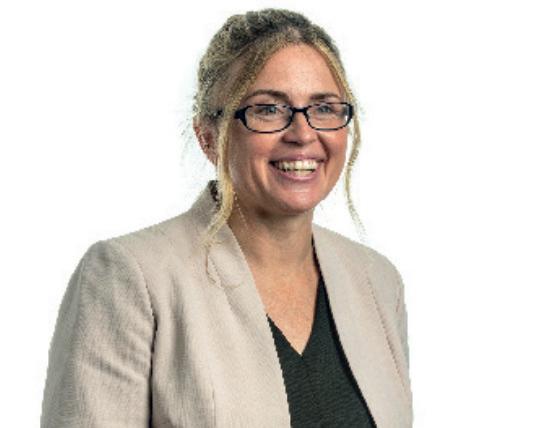
New corporate reporting requirements coming
The Financial Reporting Council (FRC) has welcomed the UK government’s publication of the draft statutory instrument on corporate reporting, which will strengthen reporting requirements.
The new requirements will introduce:
• An annual Resilience Statement, setting out how a company is managing risk and building or maintaining resilience over the short, medium, and long term.
• A triennial Audit and Assurance Policy Statement, explaining how the company proposes to assure non-financial reporting over the following three years as well as an annual update on the
Her report stresses that businesses and other organisations face significant challenges in introducing sustainability into their business models and strategies. They also face increased sustainability reporting and assurance requirements. Their processes and systems will need to be updated and transformed to manage these.
These challenges arise against a backdrop of limited financial resources as well as human and natural resources. The long-term
survival and success of business can no longer be assured with a narrow focus on financial return alone.
The report reveals CFO’s five must-have integrative-thinking capabilities:
• Continually becoming –constantly evolving through nurturing personal capabilities.
• Empathising – understanding other viewpoints and perspectives.
• Exploring – searching out unfamiliar territory.
• Co-creating – seizing the opportunities that arise from collaborating with others.
• Empowering – enabling colleagues and stakeholders to take actions.
For more go to https://tinyurl. com/mpkyyfuk
implementation of the policy.
• An annual statement about distributable profits and the company’s policy on distributions.
• An annual statement on steps taken to prevent and detect material fraud.
Britain loses 6,000 retail shops in five years Crippling business rates and the impact of the Covid-19 lockdowns has forced 23 shops every week to close over the past five years, says research from the British Retail Consortium (BRC).
The BRC is calling on the government to review the “broken business rate system”, and points to the fact that from next April an additional £400m will be added to retailers’ bills.
It was also critical of the recent announcement to use vacant units for housing. This would, it claimed, leave gap-toothed high streets that would no longer be seen as a customer destination.
Moore Kingston Smith expands into Ireland
Moore Kingston Smith LLP has bolstered its international reach with the acquisition of leading Irish accounting firm Moore.
As the firm’s first strategic investment since completing its PE investment on 30 June, the partnership with Moore in Ireland will significantly strengthen Moore Kingston Smith’s ability to provide comprehensive support to its growing client base with international interests.
The PQ Book Club: books you should read
Do you have imposter syndrome? A KPMG study found that 75% of high achieving women have reported having it. And that figure rises to 85% in the US. As Jodi Cottle says in her book that is a huge number, and she herself was on the list. So she did a short course which turned into an MBA, which in turn gave her the confidence to speak up and back herself. She also promotes someone else’s book – John Kehoe’s Mind Power into the 21st Century. That helped too.
The aim of her book is to show women they aren’t alone,
but this isn’t a fluffy story about how she became a multimillionaire at 40 by being a highpowered executive or start-up genius. She is neither of those.
Cottle deals with all the elephants in the room. She says that women experience being ‘mansplained’ to six times per week at work, that’s 312 times a year. There’s also ‘hepeating’ –when a woman suggests an idea, it is ignored, but then a man says the same thing and everyone loves it.
These two are bad but sexual harassment is far worse and she addresses this issue – and she
is concerned that far too many women let it slip. Cottle says women have a choice and over time those choices can help change the unconscious societal biases that can become entrenched in the workplace.
The Pocket MBA is all about empowering and helping women became leaders, and create happier, high-performing and sustainable workplaces, and Cottle achieves that in a really nice way.
PQ rating: 5/5 We are giving this one our top rating. We really liked it and Cottle achieves so much in just 200 pages.

PQ 39 PQ Magazine September 2023
The Pocket MBA: A Woman’s Playbook for Succeeding in Business, by Jodi Cottle (Wiley £13.95)
careers
got a story, funny or serious, you want to share? Email graham@pqmagazine.com
Puzzle bored
After many years working as accountants Mark and Denise Carter decided a total change of direction was necessary. They wanted to reduce stress levels and change their lives ‘for the better’. Their answer – Puzzle Bored, an online puzzle shop.
They had always enjoyed puzzling but were getting bored with the existing jigsaw puzzle styles on the market. So the Brightonbased couple partnered with local artists to introduce unique, contemporary and street art styles of jigsaw.
Now they plan to open a split-level retail unit in Brighton to sell the jigsaw puzzles in store. The aim is to have a no-tech, quietspace café to escape the hustle and bustle of busy life.
Check them out at https://www.puzzlebored.co.uk, or pop into 27 New Road to say hello.
Thurrock Council paying for yachts, not housing
Thurrock Council in Essex has debts of about £1.3 billion after a series of failed investments. Now it has been revealed businessman Liam Kavanagh used the council’s money to buy himself a luxury yacht, a private jet and even a Bugatti Chiron car.
Thurrock invested £655 million in Kavanagh’s solar farm

business, and his lawyers are claiming all the payments were permissible, and were approved by his company’s finance team

and auditor.
Thurrock Council had been investing in the solar farms since 2016; however, the business fell into administration and the council is facing a £200m shortfall on its investment.
The spotlight has now also turned on Thurrock’s former chief finance officer, Sean Clarke, who arranged the payments. An independent report found he had unlimited authority to “invest in anything he felt fit”.
Your alternative summer reading list
Pearson, one of the world’s leading learning companies, has launched an AI summer reading list, a collection of titles selected to encourage the exploration of artificial intelligence.
Pearson CEO Andy Bird said: “AI is the most talked about technology that is revolutionising how we live and interact with each other. To
harness its power responsibly, leaders and learners must have the resources to understand its potential and associated challenges. In order to truly understand its far-reaching social impact, these titles will help people understand its strength and apply AI responsibly in their careers and our society.”
The list includes:
• The AI Revolution in Medicine: GPT-4 and Beyond by Peter Lee, Carey Goldberg, and Isaac Kohane.
• Artificial Intelligence: A Modern Approach
Is this love?
When you have been a tutor for nearly 40 years nothing much fazes you. Well, on ACCA June exam results day even industry veteran Sunil Bhandari had to raise an eyebrow when he was messaged “the best results day message I have ever received from a student”. He even showed his wife and she loved it too!

We have a screen shot of the message:
by Stuart Russell and Peter Norvig.
• Deep Learning Illustrated: A Visual, Interactive Guide to Artificial Intelligence by Jon Krohn with Grant Beyleveld and Aglaé Bassens.
• Learning Deep Learning: Theory and Practice of Neural Networks, Computer Vision, Natural Language Processing, and Transformers Using TensorFlow by Magnus Ekman
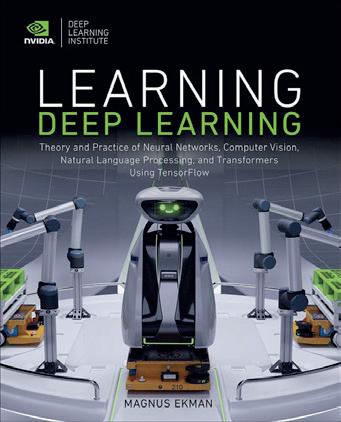
• Foundations of Deep Reinforcement Learning: Theory and Practice in Python by Laura Graesser and Wah Loon Keng.
WE V E G O T T H E L O T ’
Potter to colour in
From the heraldry of the four Hogwarts houses to the extravagant wares of Weasleys’ Wizard Wheezes, the world of Harry Potter overflows with radiant colour. Filled with intricate illustrations and elaborate designs used in the making of the Harry Potter films, this month’s book giveaway invites you to colour in that world.
We have three copies of the Harry Potter Colouring Book for you this month, and if you want the chance to win one send your name and address to giveaways@pqmagazine.com.

Head up your email ‘Harry Potter rules.’
Peaky Blinders cookbook

It’s the first official cookbook from the global TV drama Peaky Blinders, which means you can eat like the Shelby family! There are 50 delicious recipes to choose from, and you can imagine you are eating them in the bar at the Garrison or the glamorous Eden Club. Try out the steamed sole fillets with brown shrimps and samphire in a parcel, or the mushroom, chard and beetroot tart!
We have three copies of The Official Peaky Blinders Cookbook up for grabs. Send an email headed up ‘By order of the Peaky Blinders’ to giveways@pqmagazine.com. Don’t forget to include your name and postal address – just in case you win!
Terms and conditions: One entry per giveaway please. You must send your name and address to be entered for the draw. All giveaway entries must be received by Friday 15 September 2023. The main draw will take place on Monday 18 September 2023.
ENTER THESE GIVEAWAYS EMAIL GIVEAWAYS@PQMAGAZINE.COM
40 PQ the PQ Magazine September 2023
TO















































































































































































